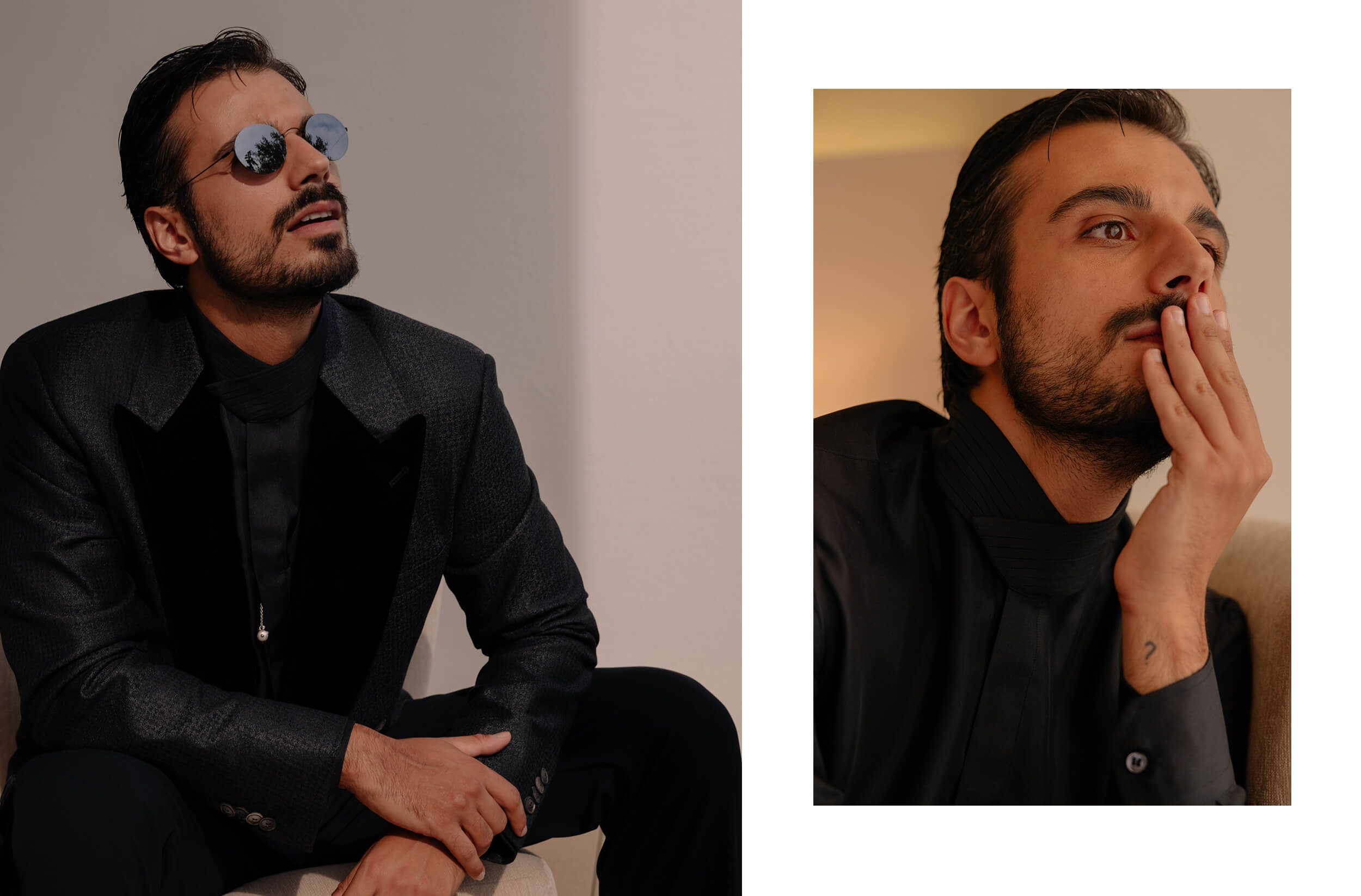Going back and changing the past, going on and knowing the future, moving even just one single grain of dust to revolutionize the course of events: the dream of human beings since the beginning of time, the most coveted superpower. Perhaps, the object of research of every era’s scientific minds? “I Viaggiatori” (lit. the travelers) by Ludovico Di Martino narrates the consequences of time traveling when the goal is to save from a potentially unpleasant fate the person you care about the most in the world and, in the meantime, try and grow up a bit.
A space-time journey crosses paths with a life journey, both intense and equally upsetting: in the setting of a modern world with interferences from a pre-war Rome, Gianmarco Saurino plays scientist Beo, who mysteriously disappears from our time triggering a series of events which will connect 2021 with 1939, concluding with the most timeless realization of all: friendship and brotherhood can win over any kind of conflict.
Gianmarco told us about his experience in the shoes of a physics researcher who accompanies his little brother along a tangible and spiritual path, in an intimate movie that has undoubtedly enriched his emotional background with new awareness. First and foremost, the awareness that he wouldn’t want to change his past: we are who we are for a reason, even the mistakes we keep making every day, every year.
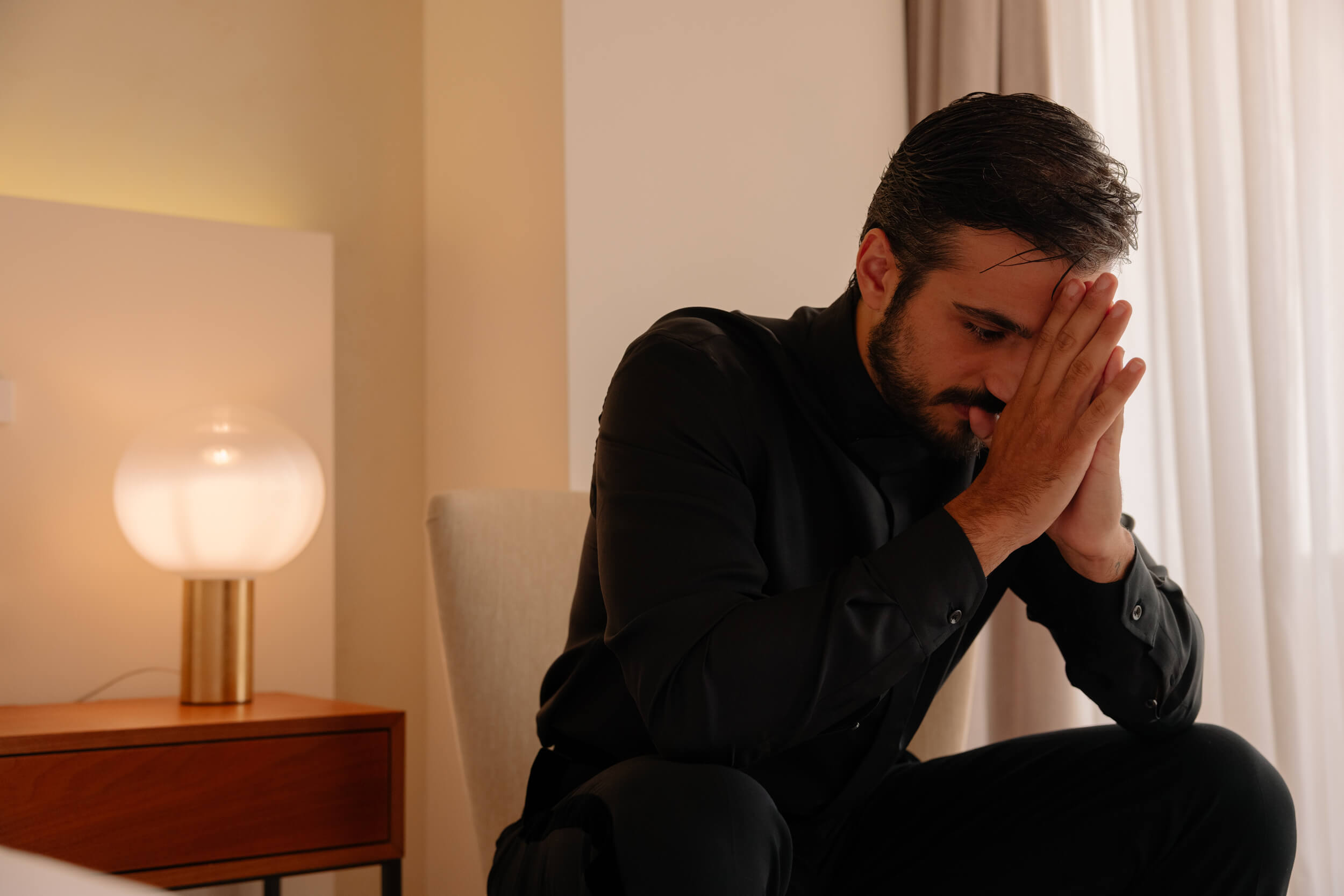
What’s your first cinema memory?
My first time at the theater with my mom. We went to see “Tarzan”, I don’t know which one, but I remember that after 10 minutes from the beginning of the movie, I looked at my mom and asked: “Can’t we lower the volume just a tiny bit?”.
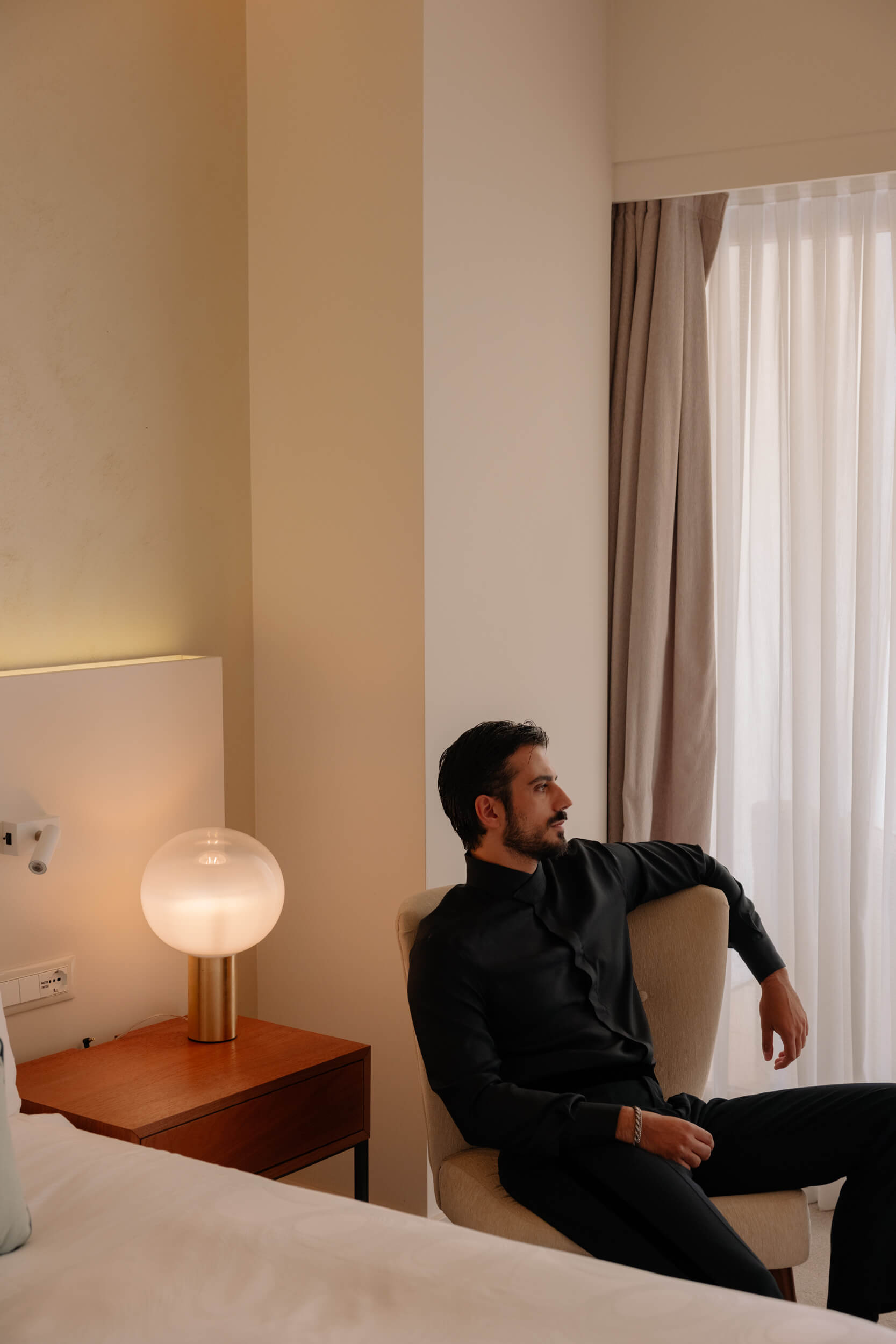
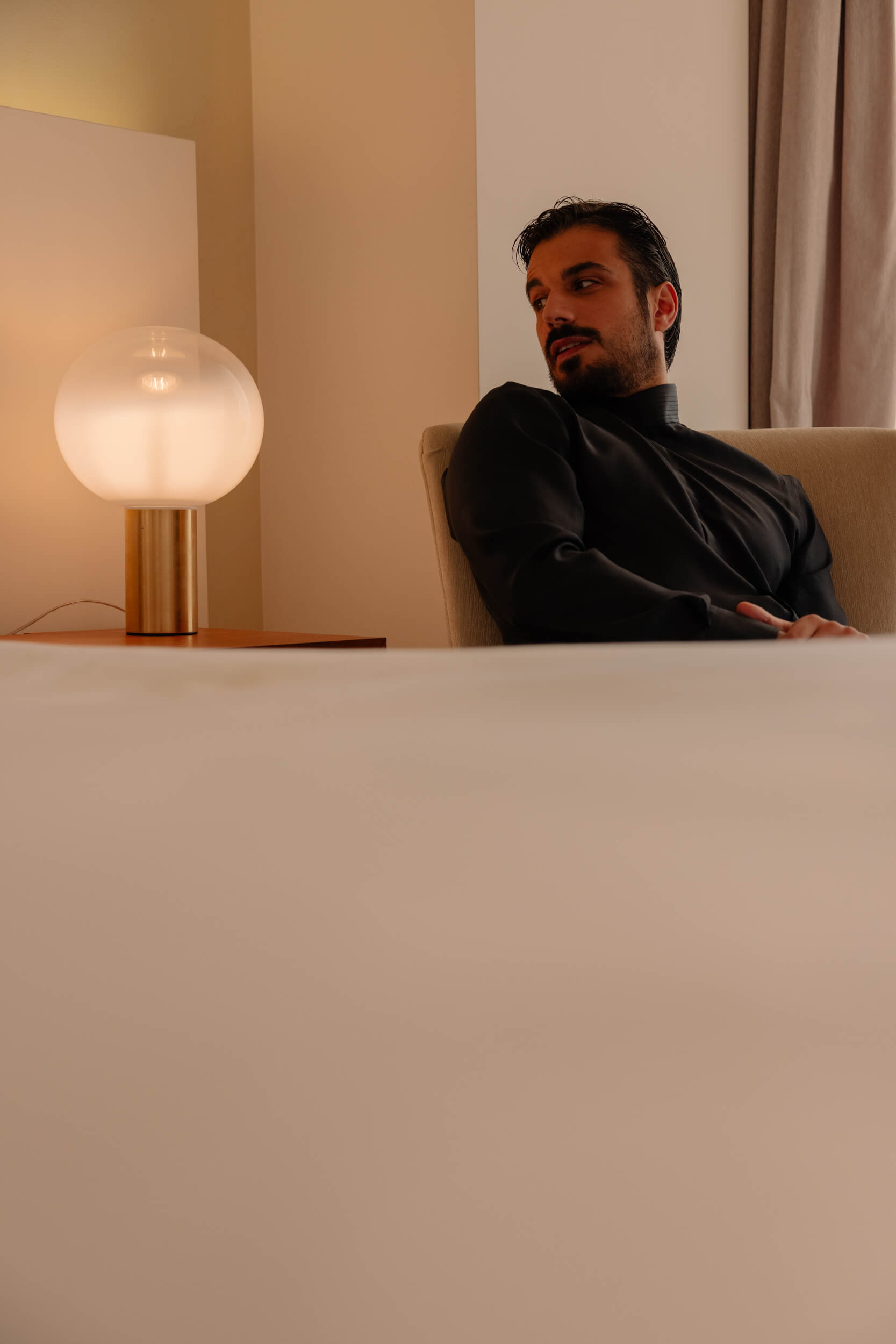
In “I Viaggiatori” by Ludovico Di Martino you play a scientific researcher who makes the discovery that perhaps all scientific researchers dream of making ever since the dawn of times: the time machine. What aspect of this story struck you more when you read the script?
The eternal glory, the Olympus.
A character like Beo certainly dreams of being forever printed on history school books thanks to such a discovery. However, rather than the “fantasy” and genre-based discovery, I’m sure that what instantly struck me was the sense of protection that this character feels towards his little brother. It’s Beo’s heart that conquered me at the beginning, and the way he can devote part of his existence to the attempt of giving a better future to the person he loves the most, regardless of saving or not saving the world.
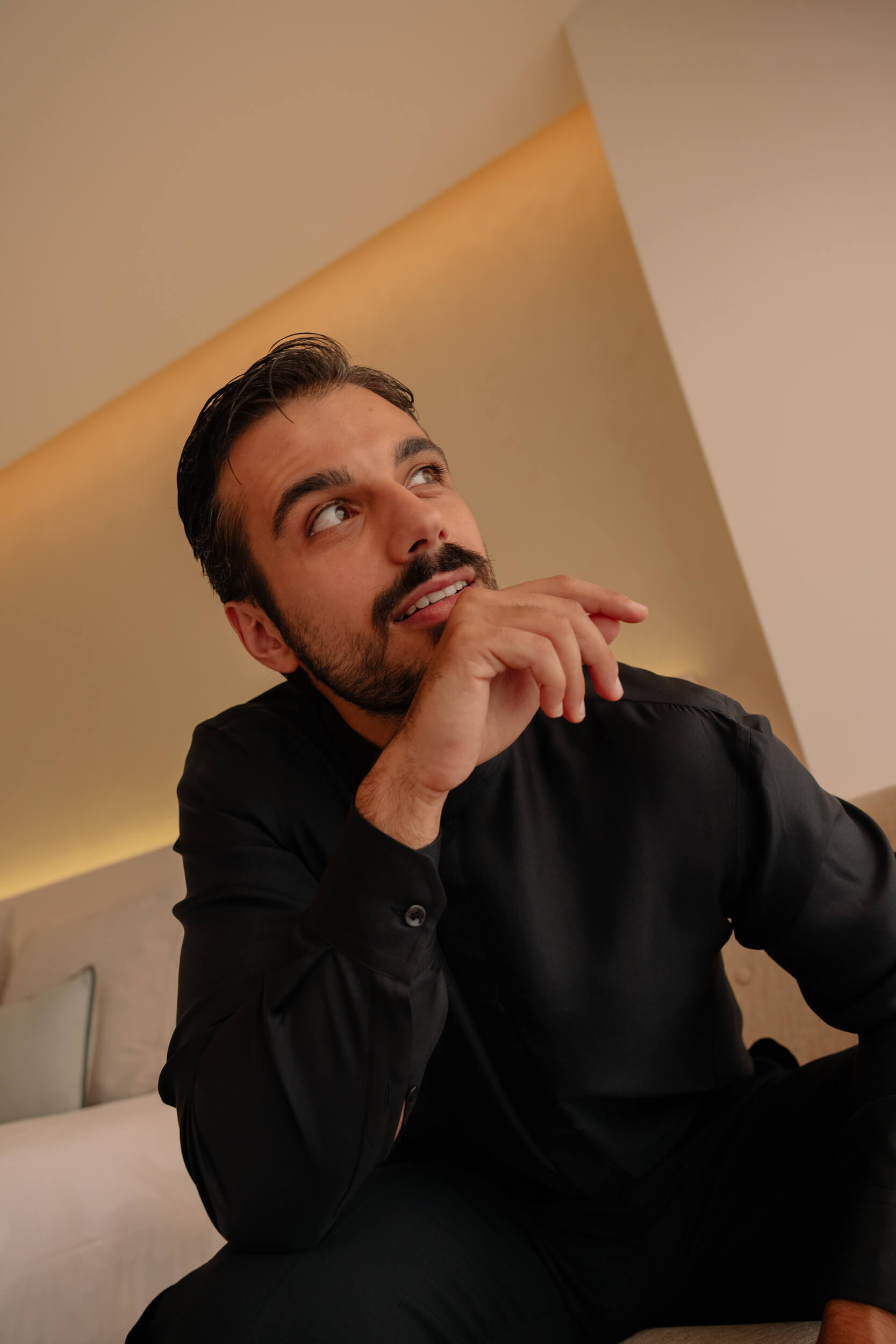
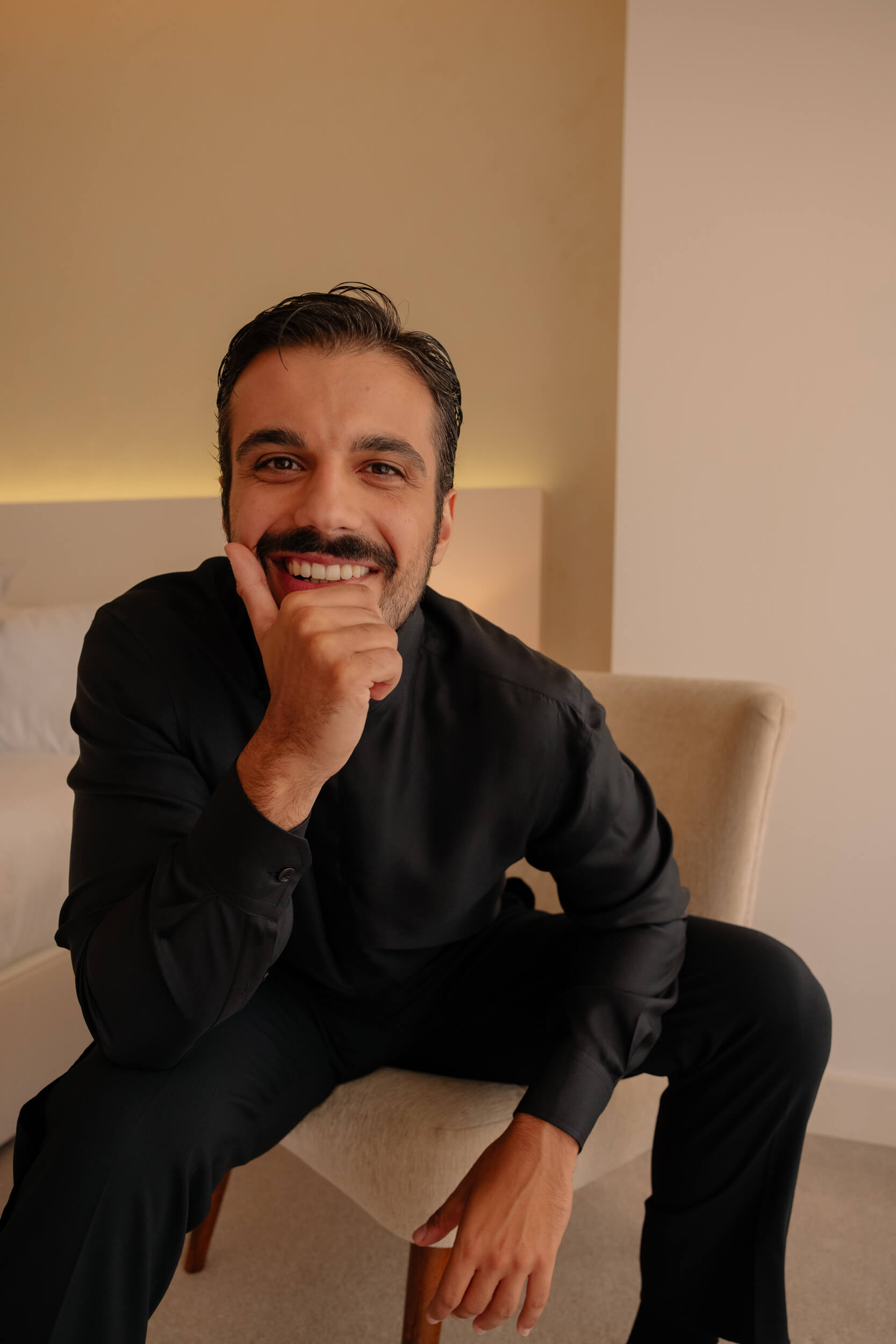
“It’s Beo’s heart that conquered me at the beginning, and the way he can devote part of his existence to the attempt of giving a better future to the person he loves the most…”
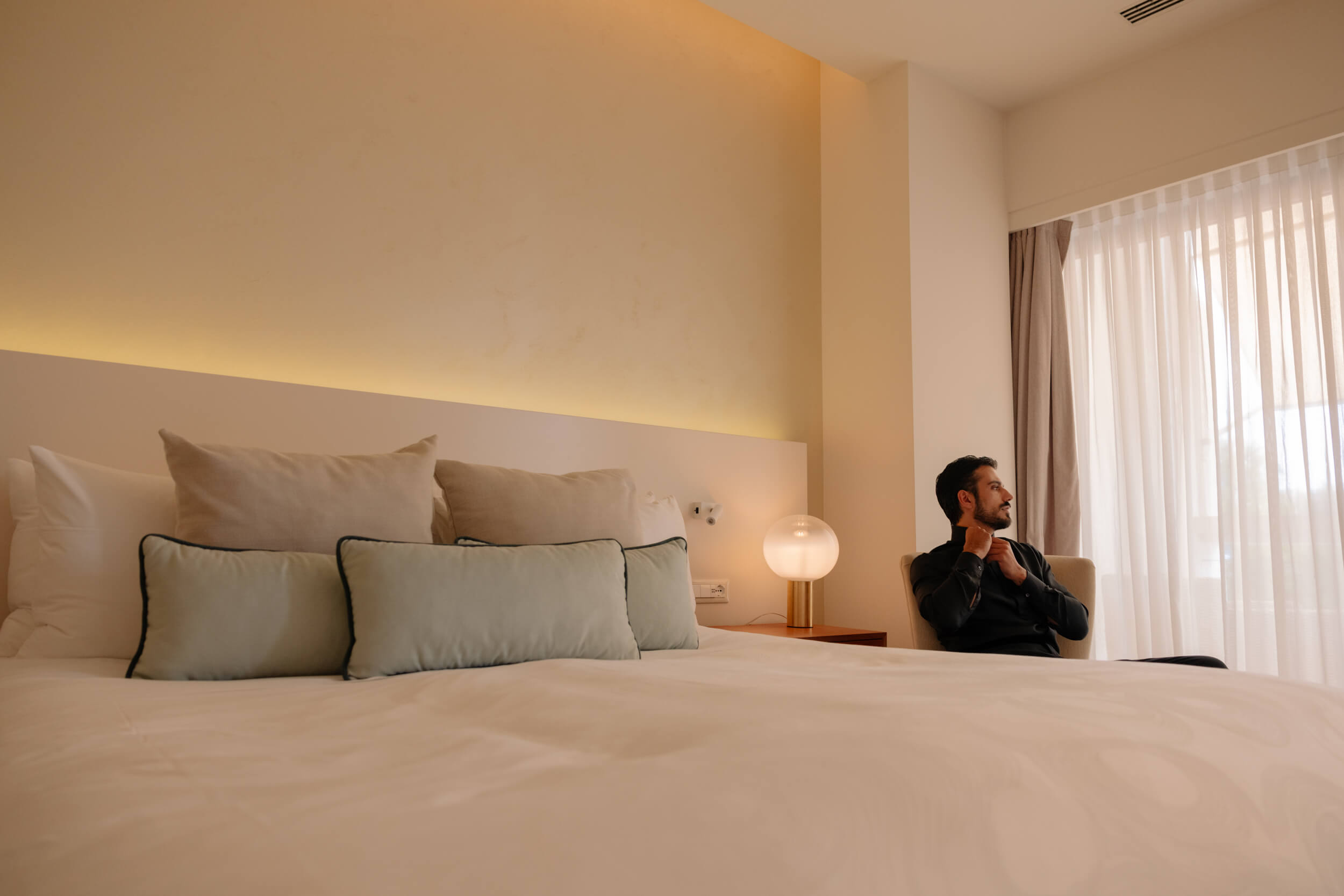
Your character, Beo, is thought to be dead, but his brother Max and this latter’s two best friends, in a mixture of disbelief and diffidence, while following his traces find themselves in a time vortex that introduces them in Rome to the dawn of World War II. It’s basically the plot of a video game! And in the mise-en-scène, between explicit quotations and infighting, this movie kind of reminded me of video games. How did you approach the role, from a physical and psychological preparation point of view, but also from a cultural one?
When I say that I gave so much to this role, that’s because I really mean that I gave it all I had. I gave it my body because Ludovico Di Martino, who’s a brilliant director, wanted from me a less agile and more clumsy body, which is certainly more fitting for a scientific researcher who spends all his time reading books and developing prototypes. All in all, by the end of shooting, I’d lost 15 kg, which had been so tiring, so challenging, and so hard. But it’s on an emotional level that I had to create, relationship-wise, with Matteo Schiavone (MAX) a real, alive, pulsing contact. It’s been nice to share his first movie and accompany him in this experience almost in parallel with Beo, who accompanies Max while handling their last journey together.
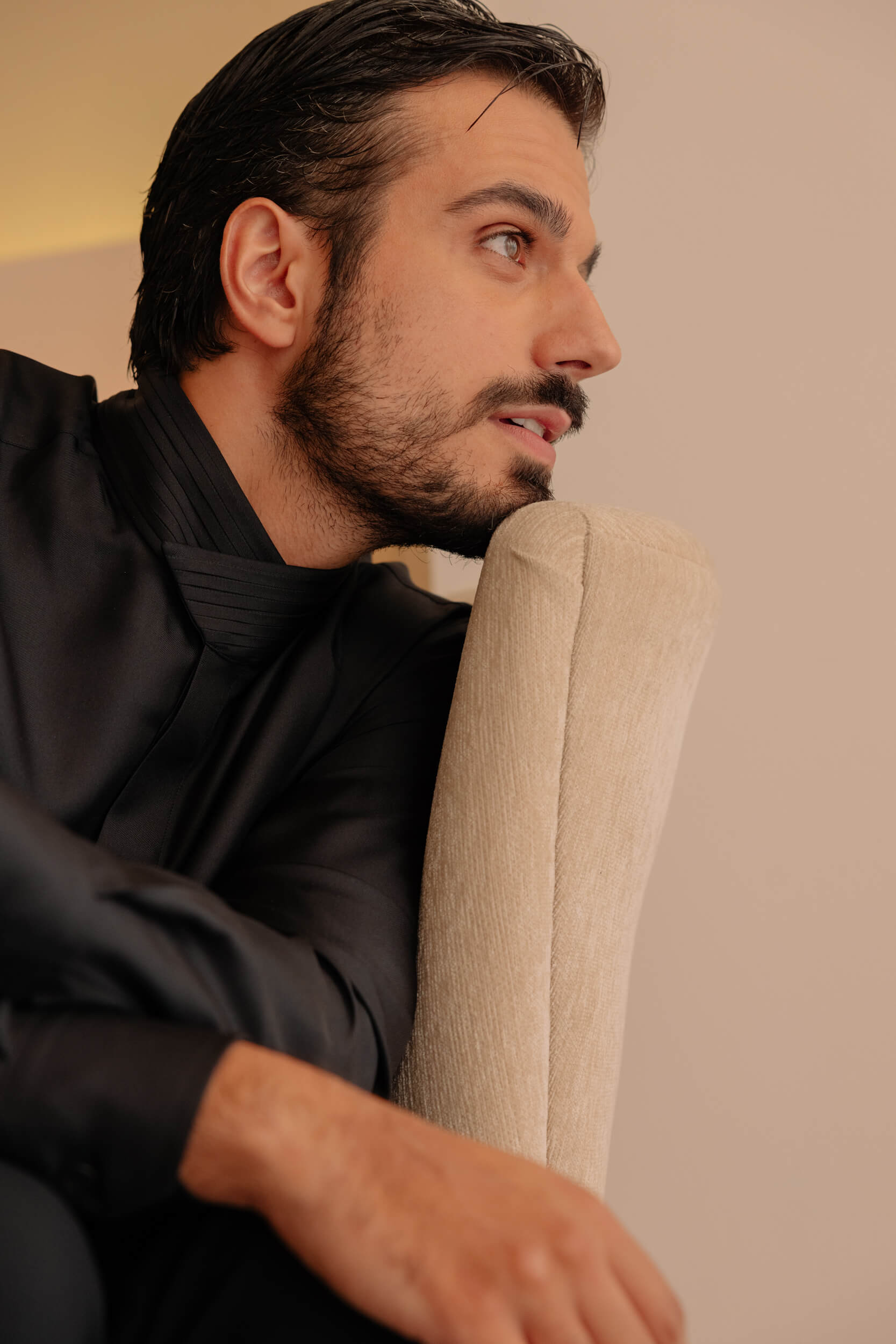
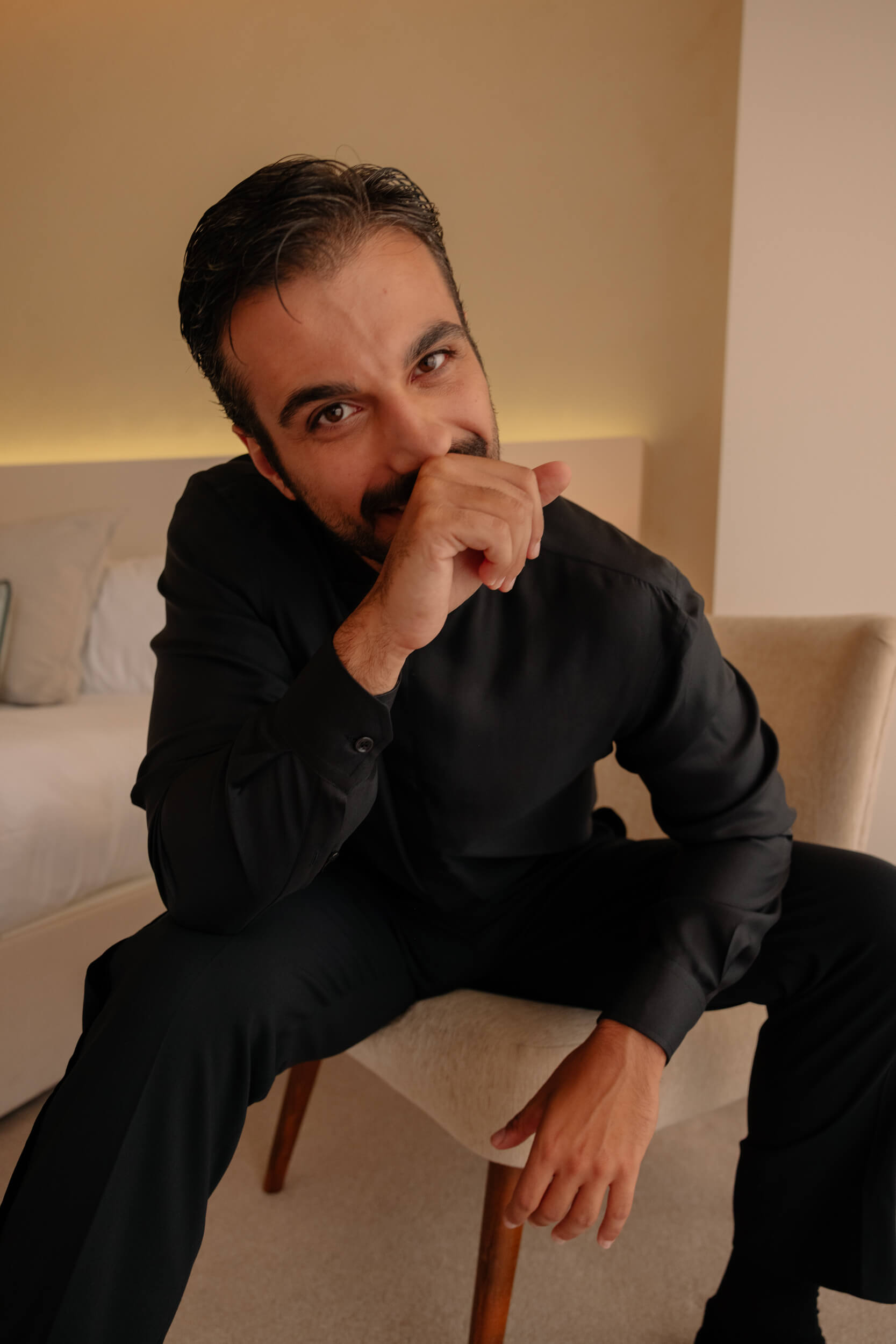
Did you discover anything new about yourself during your journey (literally)?
You get to discover so many things when you film such an intimate movie. And I’m not scared to say that it’s certainly been the most intense journey I’ve ever had, the most beautiful one, and the one I’m the proudest of as well. Such a role opens up your eyes to knowledge about the emotional background that you bring with you and, from a certain point of view, it also gave me the confidence to handle roles that are so emotionally complex.
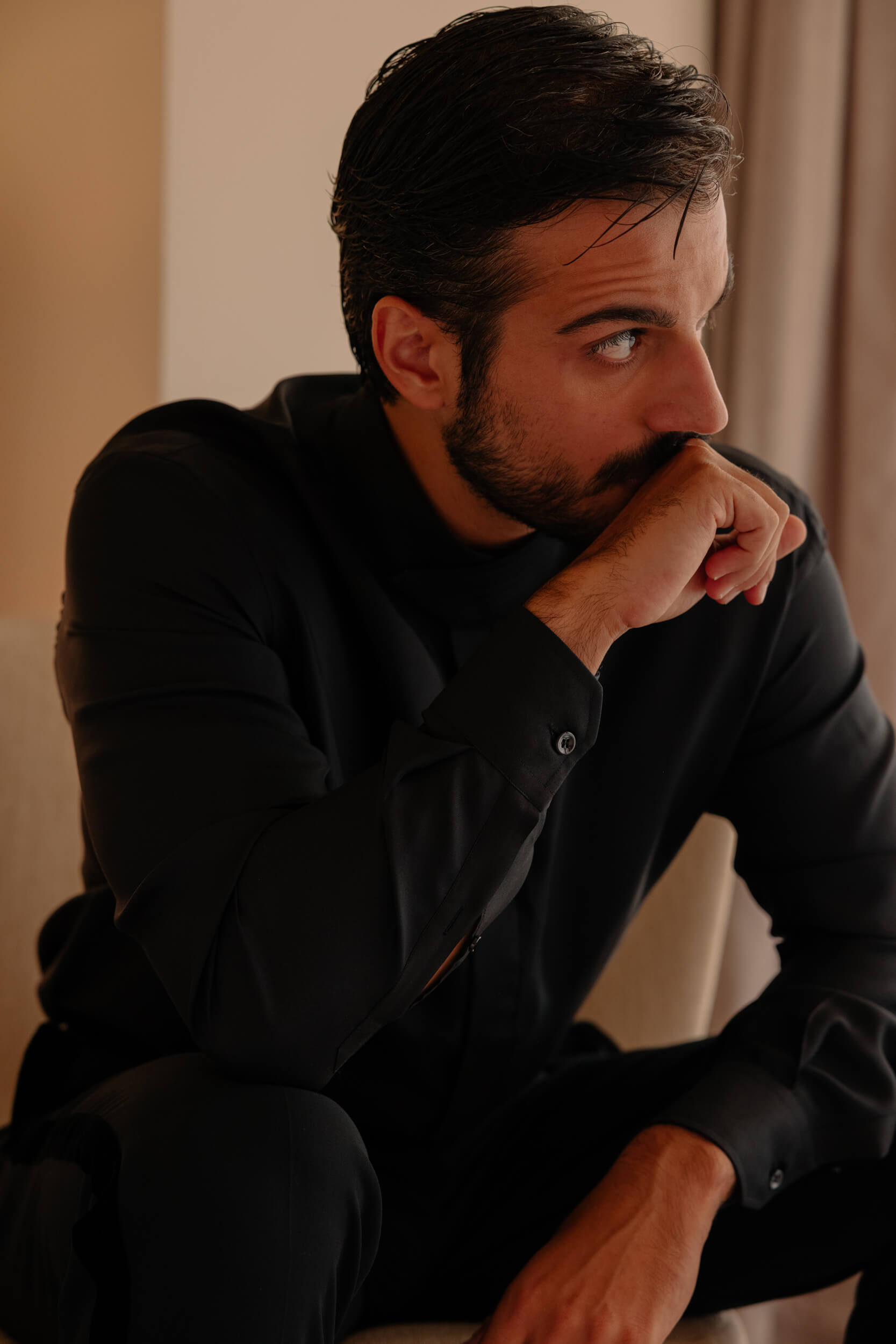
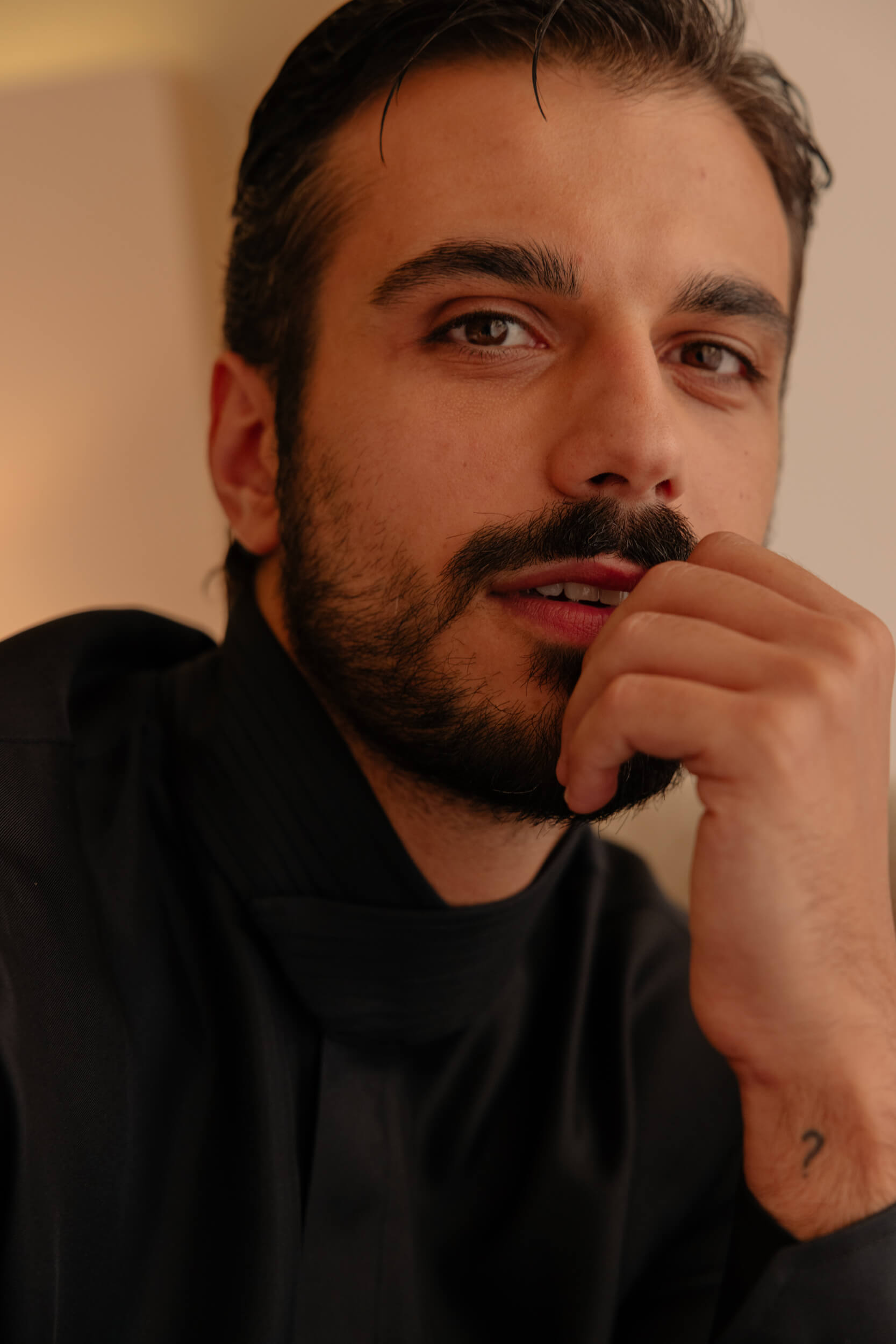
My favorite scene is the one where Max, Febo and Greta sing a very famous song, that’s also completely out of place, in front of an audience of Fascist officials. What were the most fun and the most challenging scenes to film?
I was there in that scene you’re talking about! And I can assure you that that scene carries a bit of a sense of unease because it’s not nice to be in front of 150 Black Shirts. Anyhow, when what happens does happen, well, it’s exhilarating. The most challenging scene for me was the final scene of the movie for sure: to realize you’re dying and to realize it while you’re still alive, and say goodbye to the person you love the most in the whole world while you’re still alive, it’s something that I find touching even just writing it to you now.
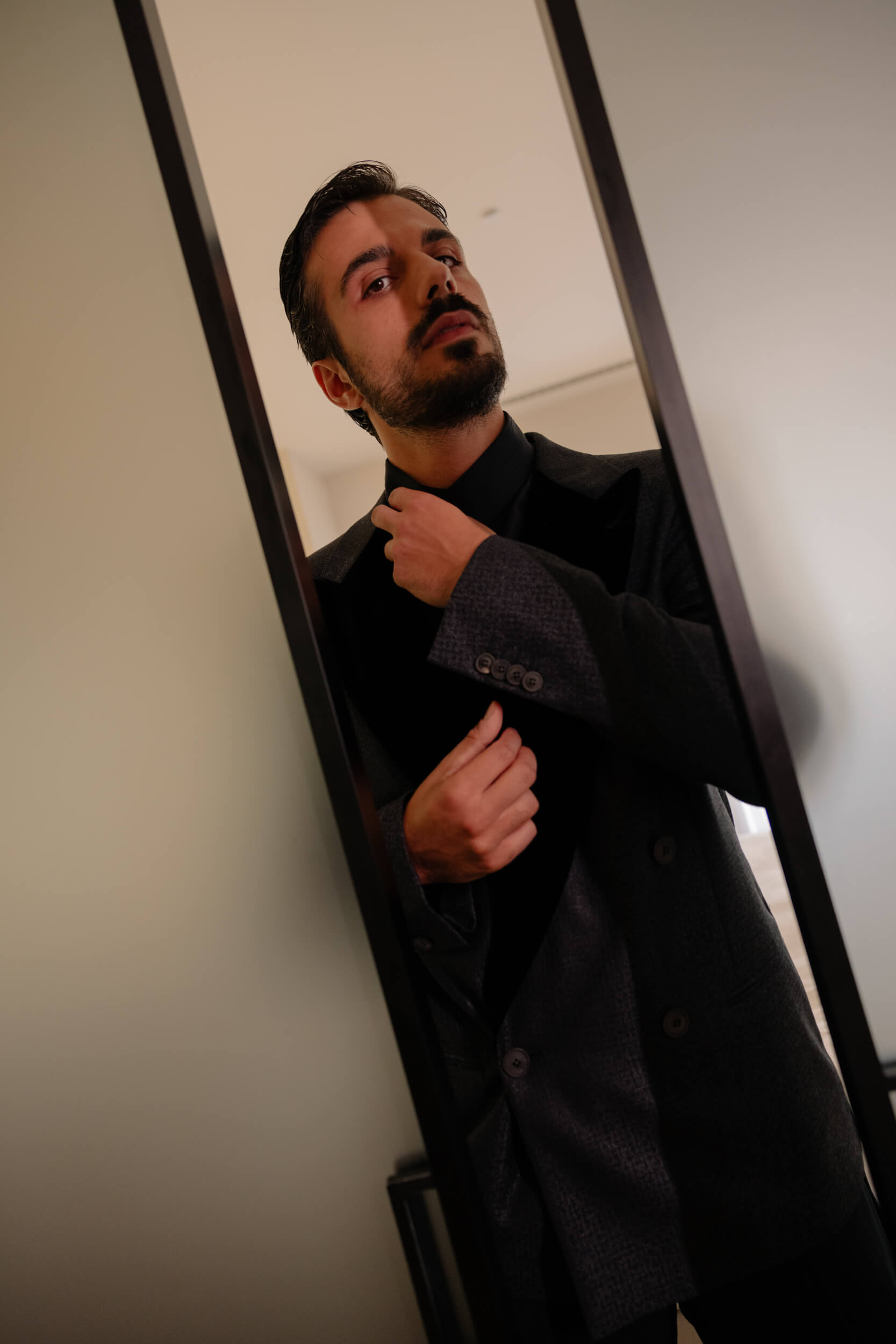
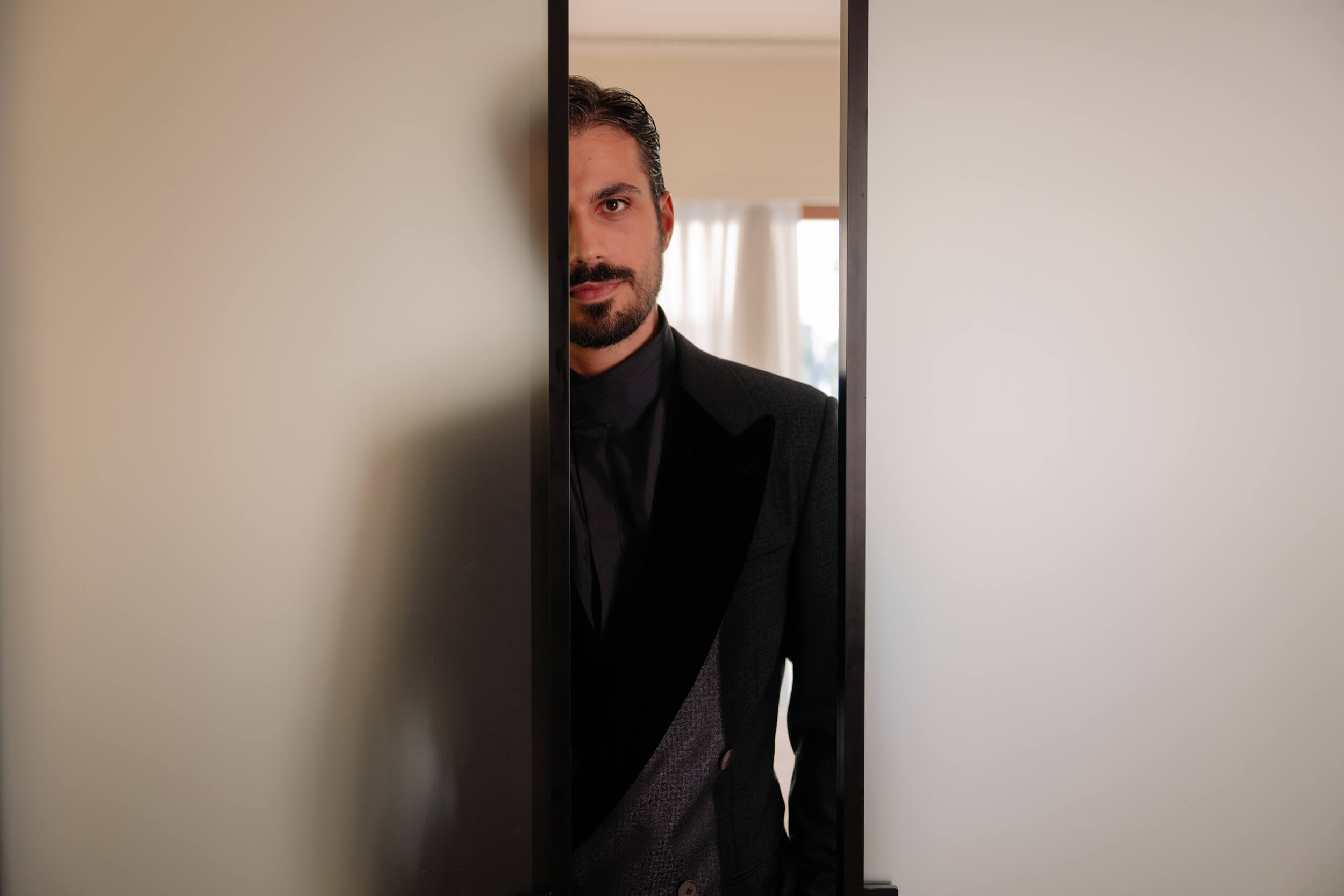
“I Viaggiatori” deals with fascism and the fight to defend individual and social freedom, with a language that’s accessible, especially to new generations. However, I believe these are universal topics that go beyond generational gaps. What’s your take on this? What reactions do you hope the audience has, watching this story made of somersaults to save the world from “the bad people”?
First and foremost, I hope that the audience gets entertained by a movie that, among other things, aims at that: entertainment. I hope the audience recognizes in our characters a wonderful story of friendship and brotherhood, and, as a consequence, how to process mourning. A coming-of-age tale inside a genre framework.
As far as the defense of individual and social freedom is concerned, I believe in the coming of the new, in the new generation. For example, I believe that their battle to promote climate change is way stronger than so many small temporary battles that my generation, from Genova on, has tried to fight, but which often turned out to be purposeless. Theirs is really a newly universal way to think about society and I hope that the audience becomes more and more aware, also thanks to this film, that in general, we cannot be uncaring anymore.
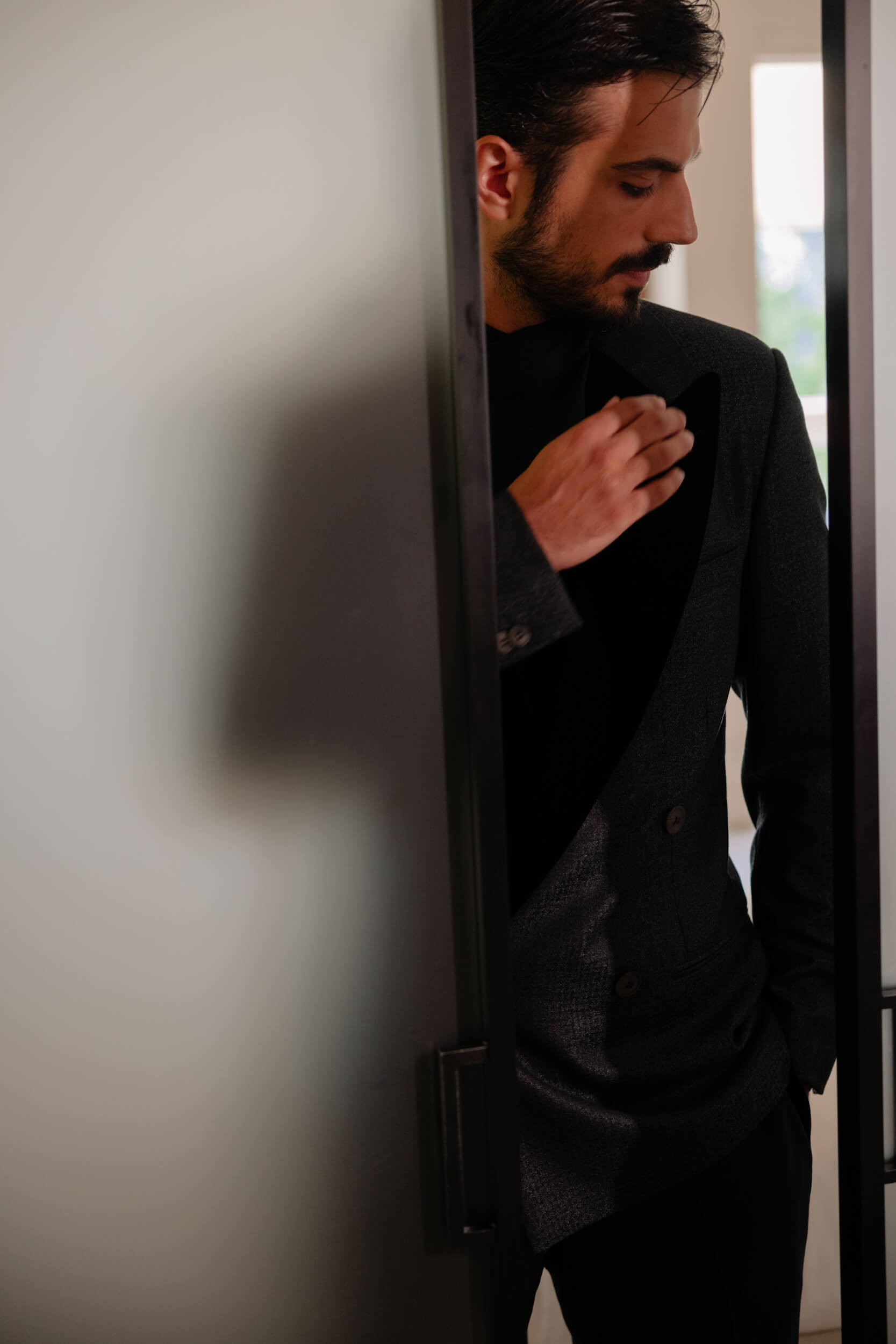
“I believe in the coming of the new, in the new generation.”
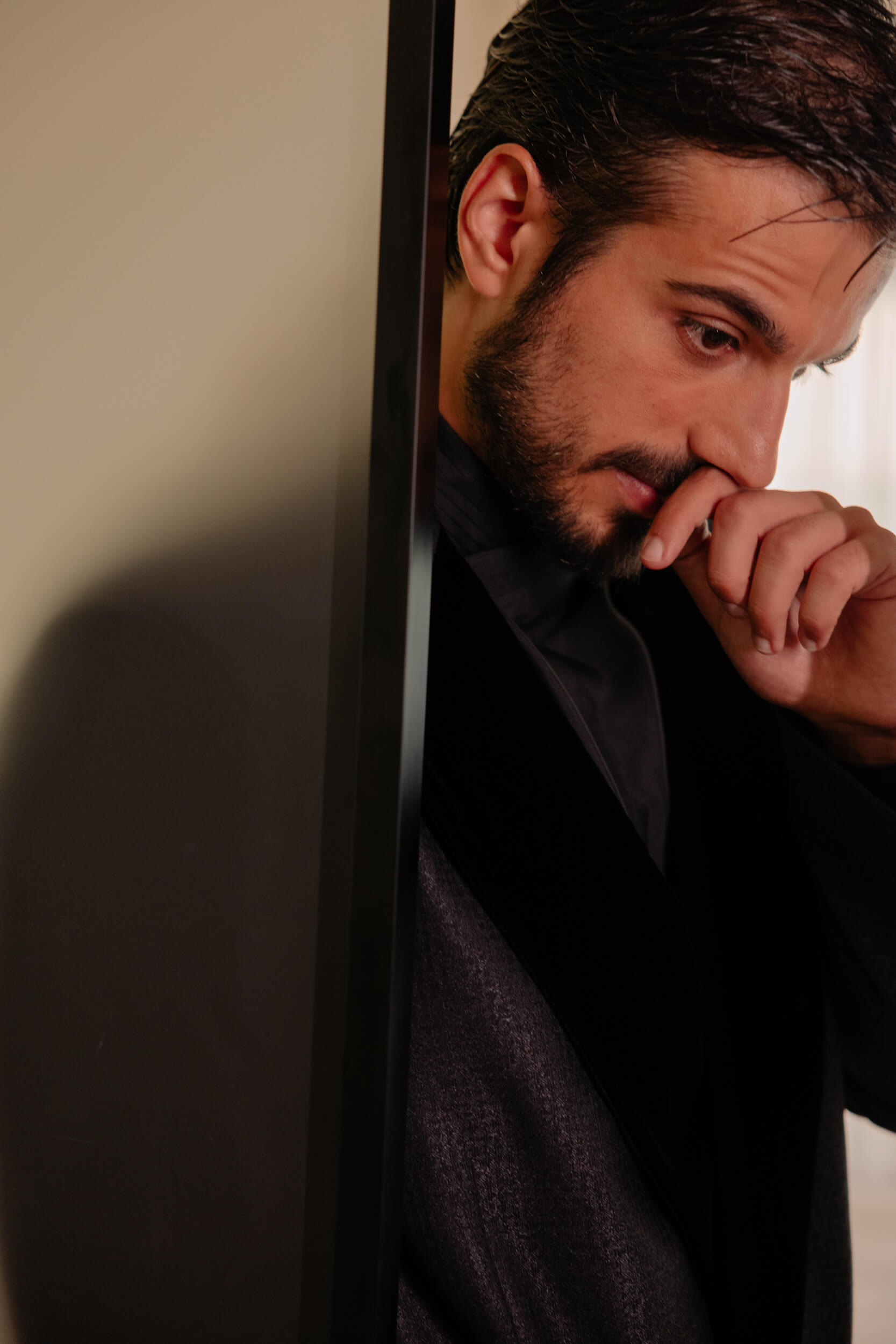
Classic but necessary question: if you could time travel, where would you want to go and why?
The only thing I remember about history in high school (and I hope my history teacher won’t be mad at me) it’s the French Revolution, the Storming of the Bastille, and the Enlightenment. So, I trust my 15-year-old self that was so fascinated by that era, enlightened, precisely, and so my answer is 1789.
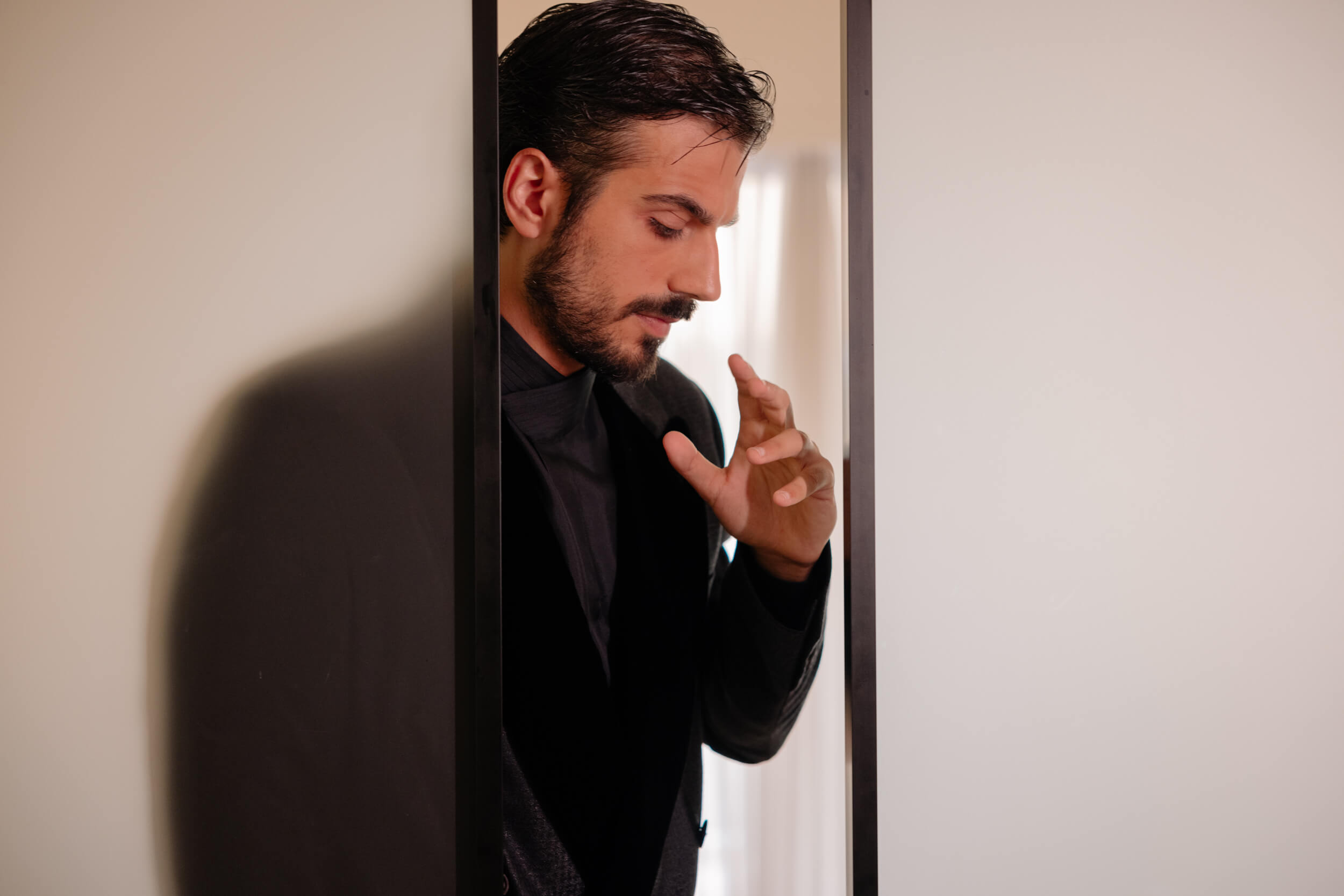
Still imagining that we could time travel, is there anything from your past you would like to change, even risking to upset the whole course of history?
You know what? I’d say nothing, so far. I believe I am very lucky, and sure, there are things I regret in my life, but I think that certain mistakes have formed the person I am today, so I’ve embraced them, they’ve undoubtedly made me a better person.
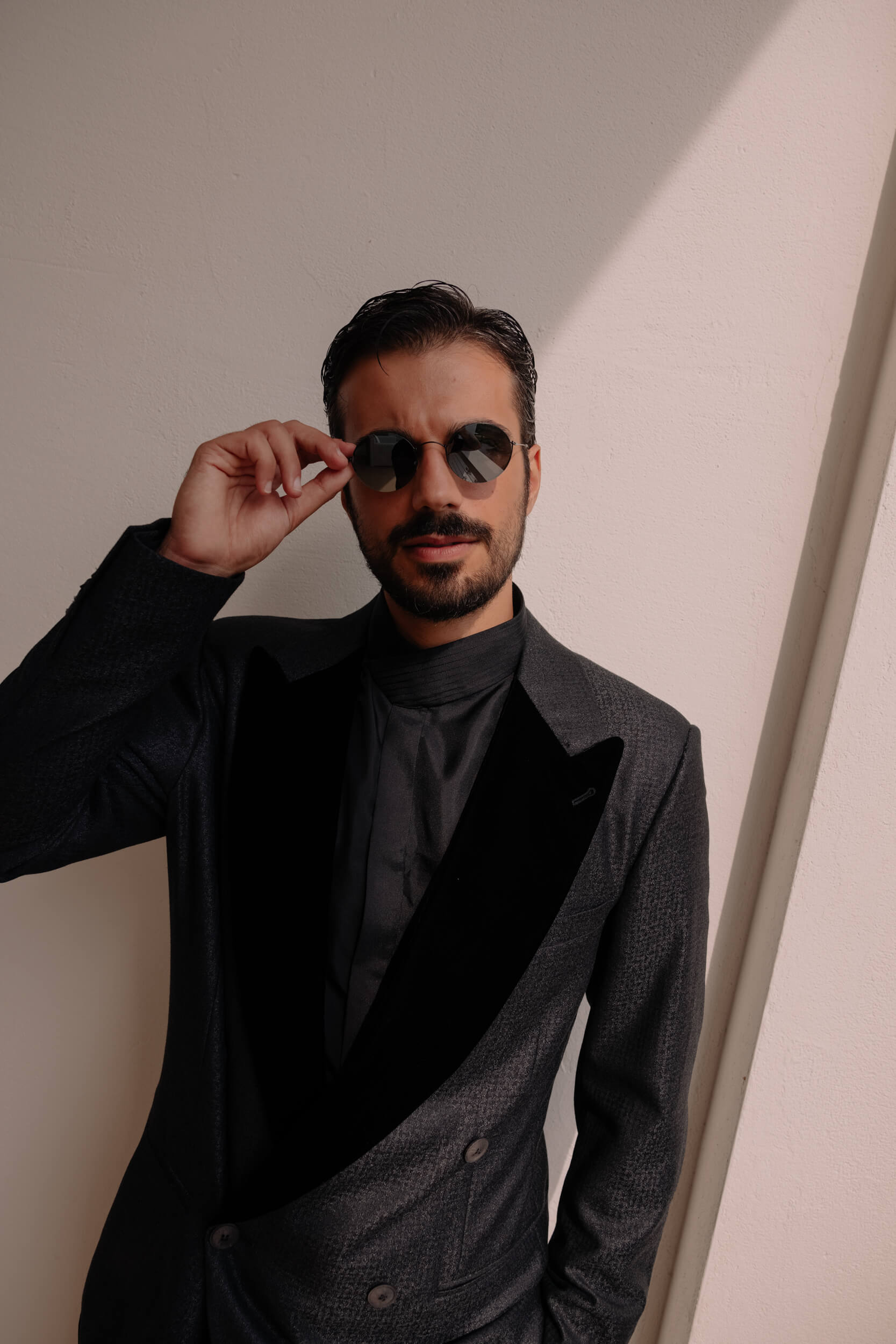
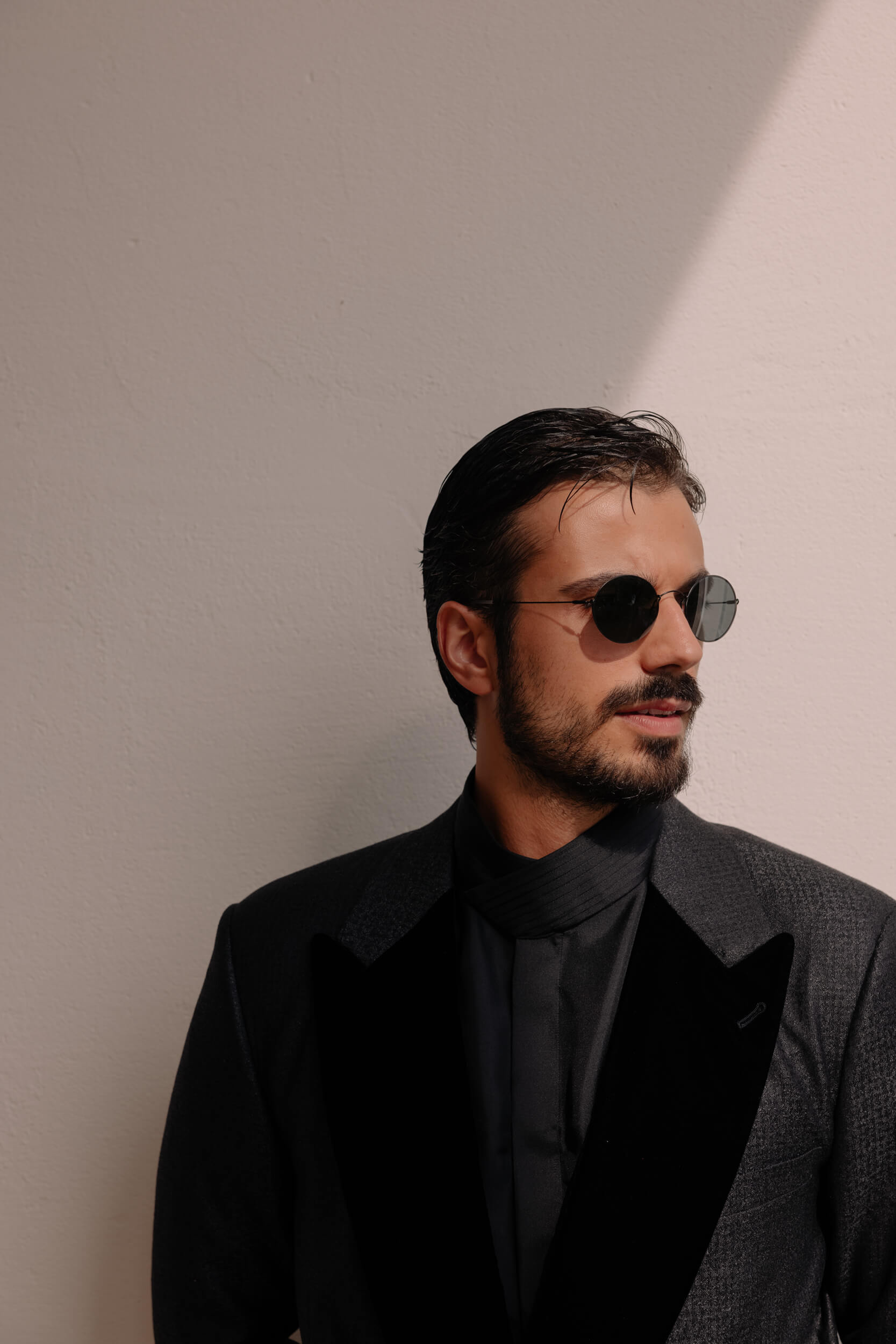
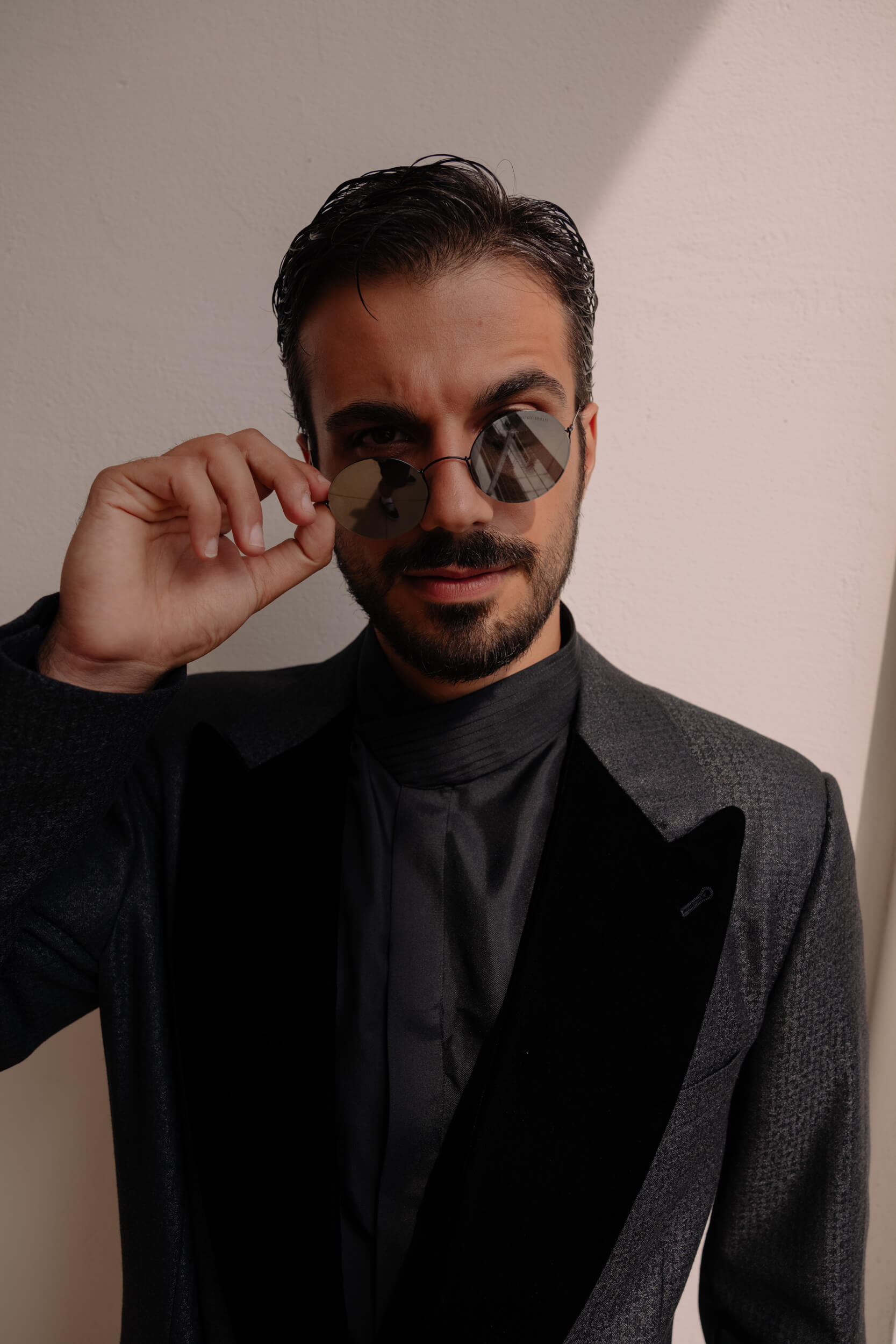
Generally speaking, what is it that makes you say yes to a project?
Care. The care for others and the care that I think I can treat my role with. How much love is there in this story and in the ones who are telling it?
When you create a character, are you more rational or instinctive?
I’m one of those people who firmly believe that rationality is the origin of instinctiveness: I wouldn’t really know how to explain it without quoting T.D. Lemon, who says that it’s within the order, within those predefined keys, 88, not one more, precisely, that the infinite can be created. I mean, I need to create a finite and rational world in order to allow creativity and instincts to freely move.
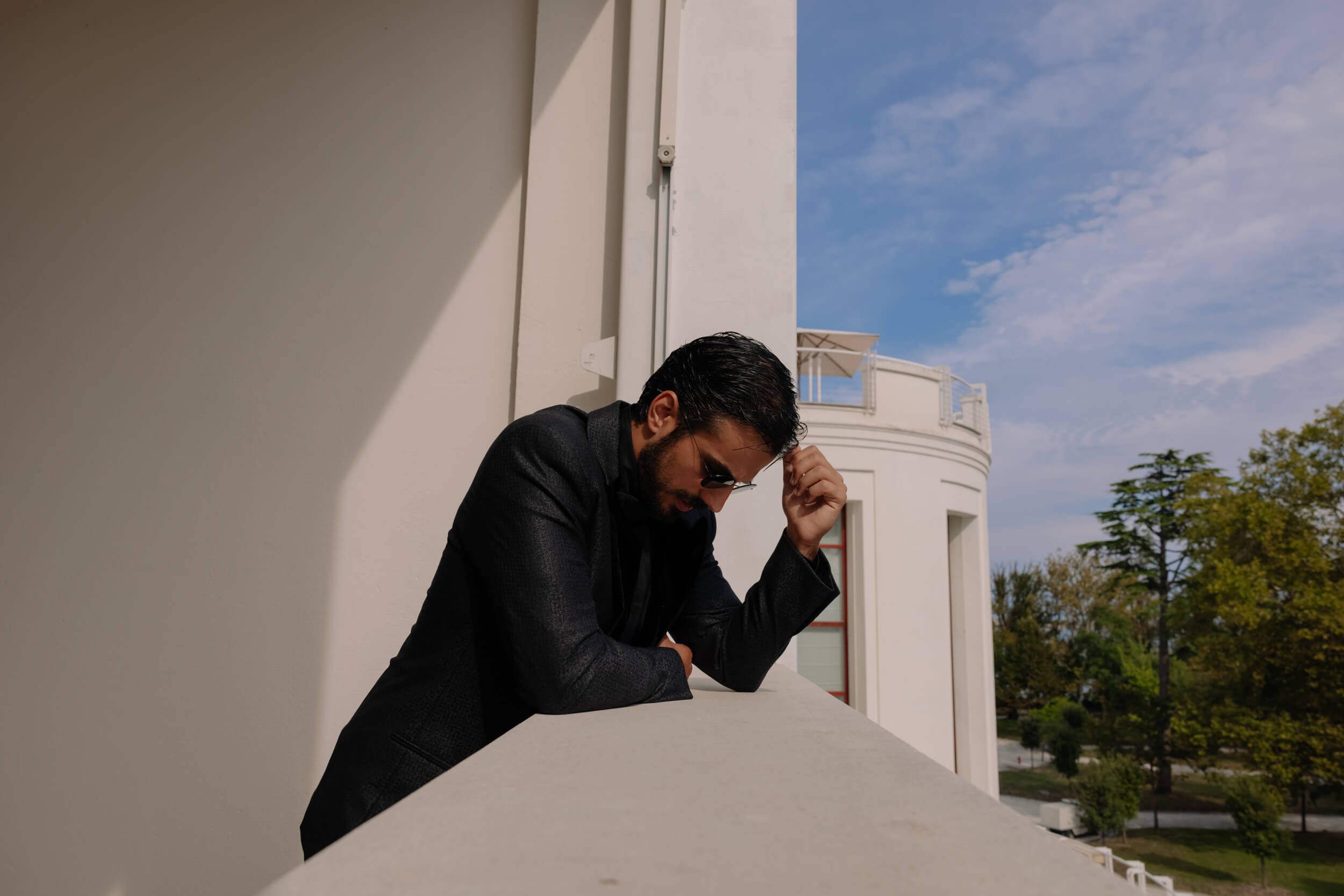
“Rationality is the origin of instinctiveness”
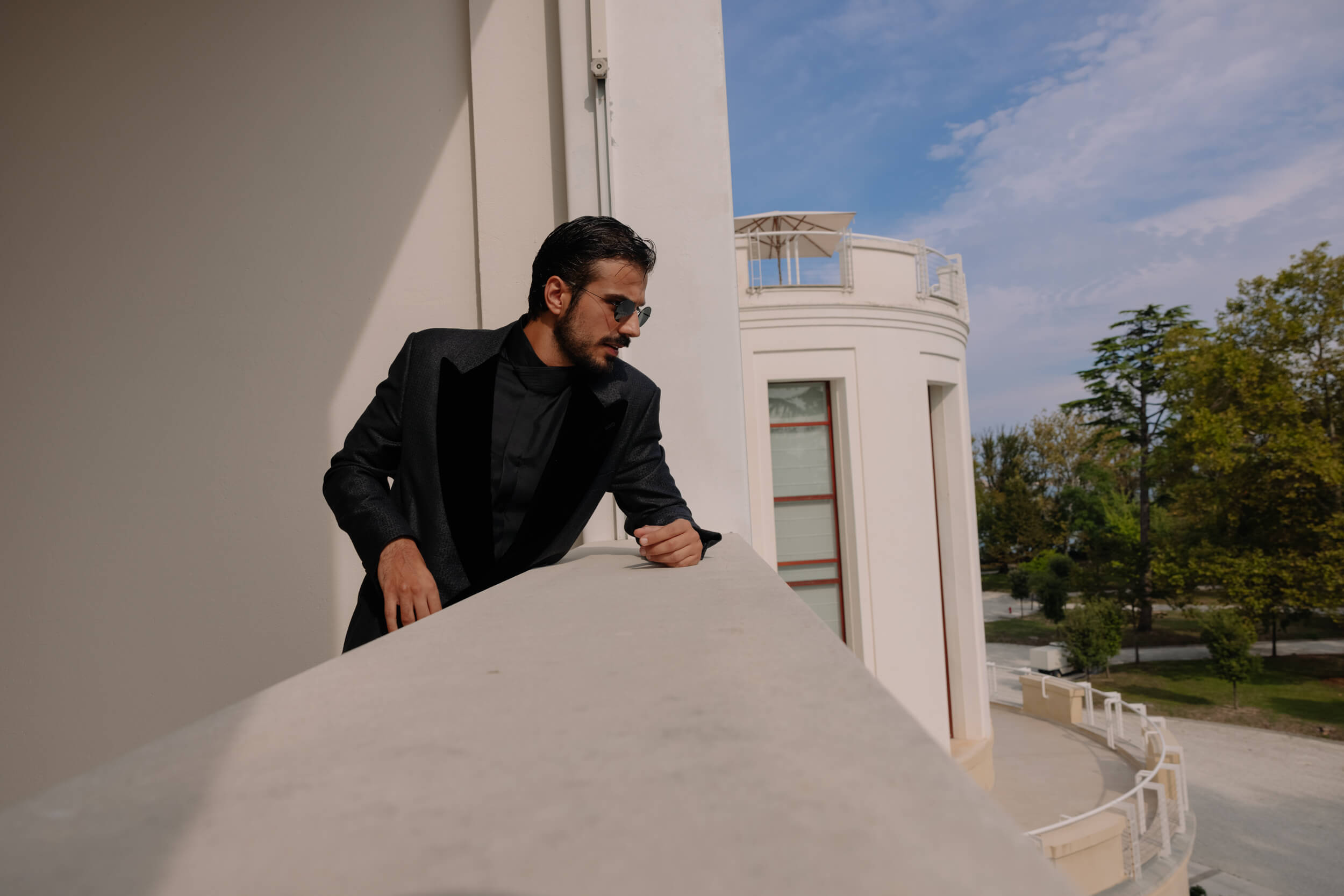
An epic fail on set.
I’ve never had one, but I’m sure it’s just a matter of time, I’ll let you know as soon as it happens, though!
Your must-have on set?
Cigarettes, headphones, the script with my doodles on from the months and months of preparation.
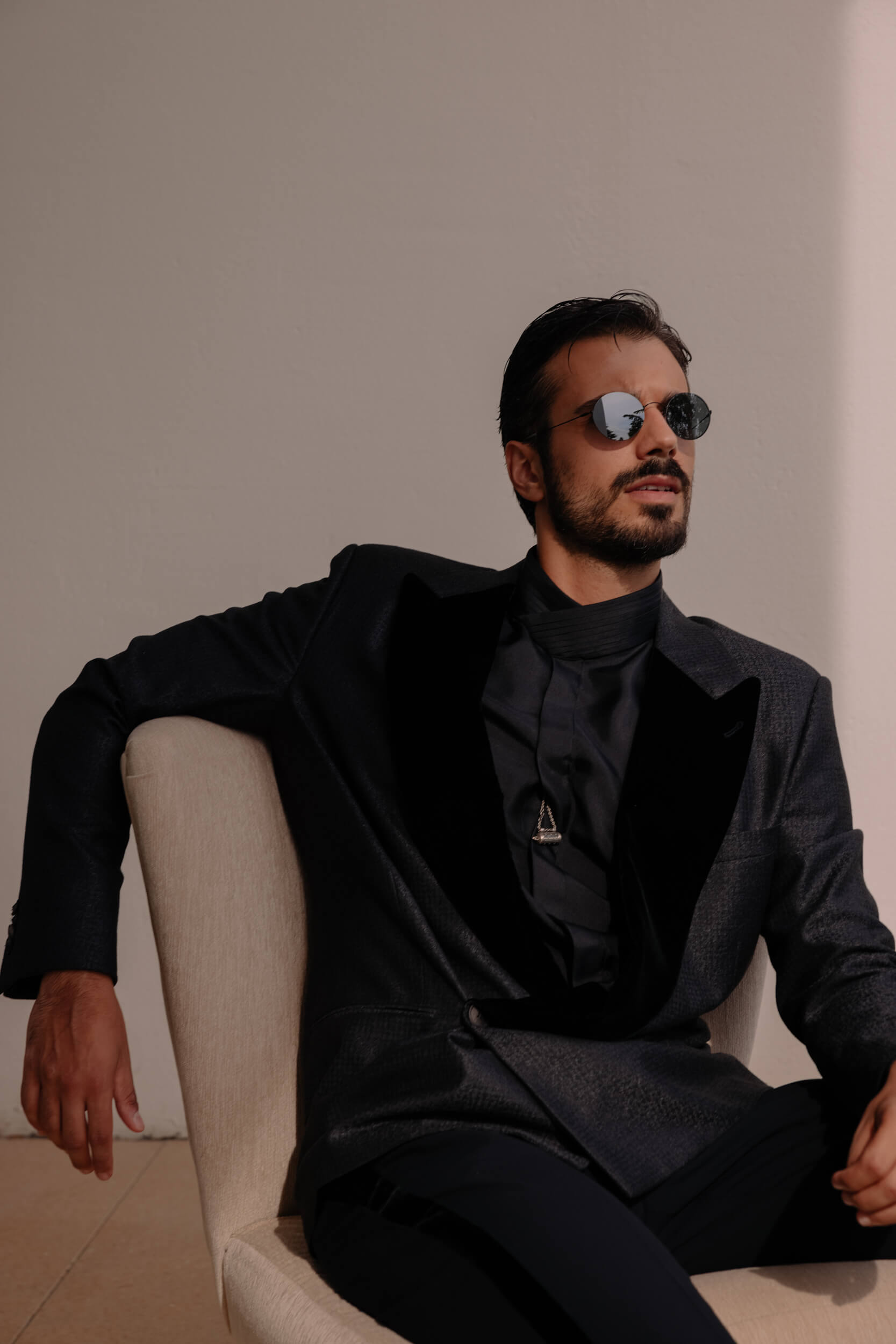
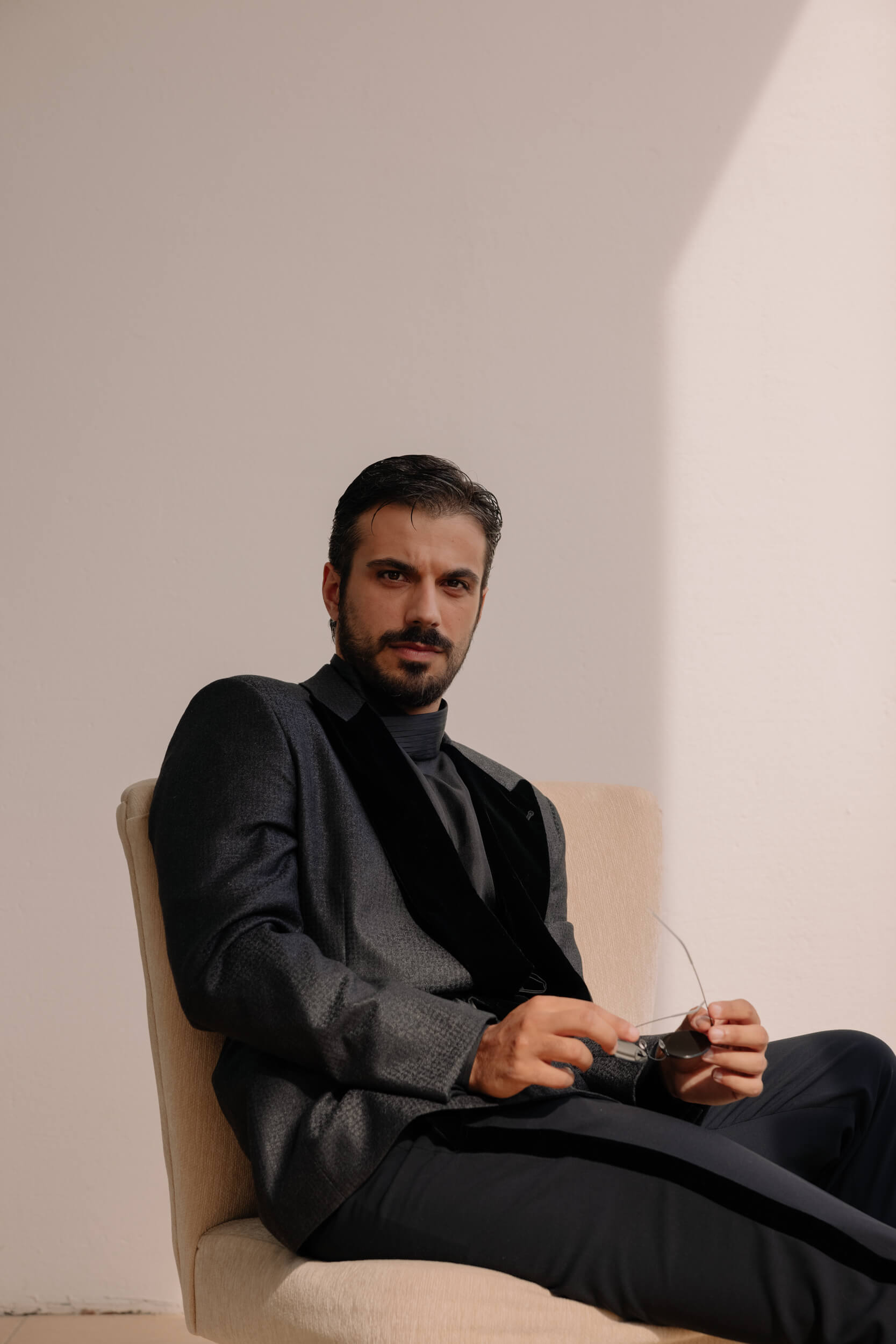
What’s the worst thing you’ve ever done?
I say I love you even when it could have been similar to a “bike crushing against a trunk”.
What are you afraid of instead?
I’m afraid of forgetting.
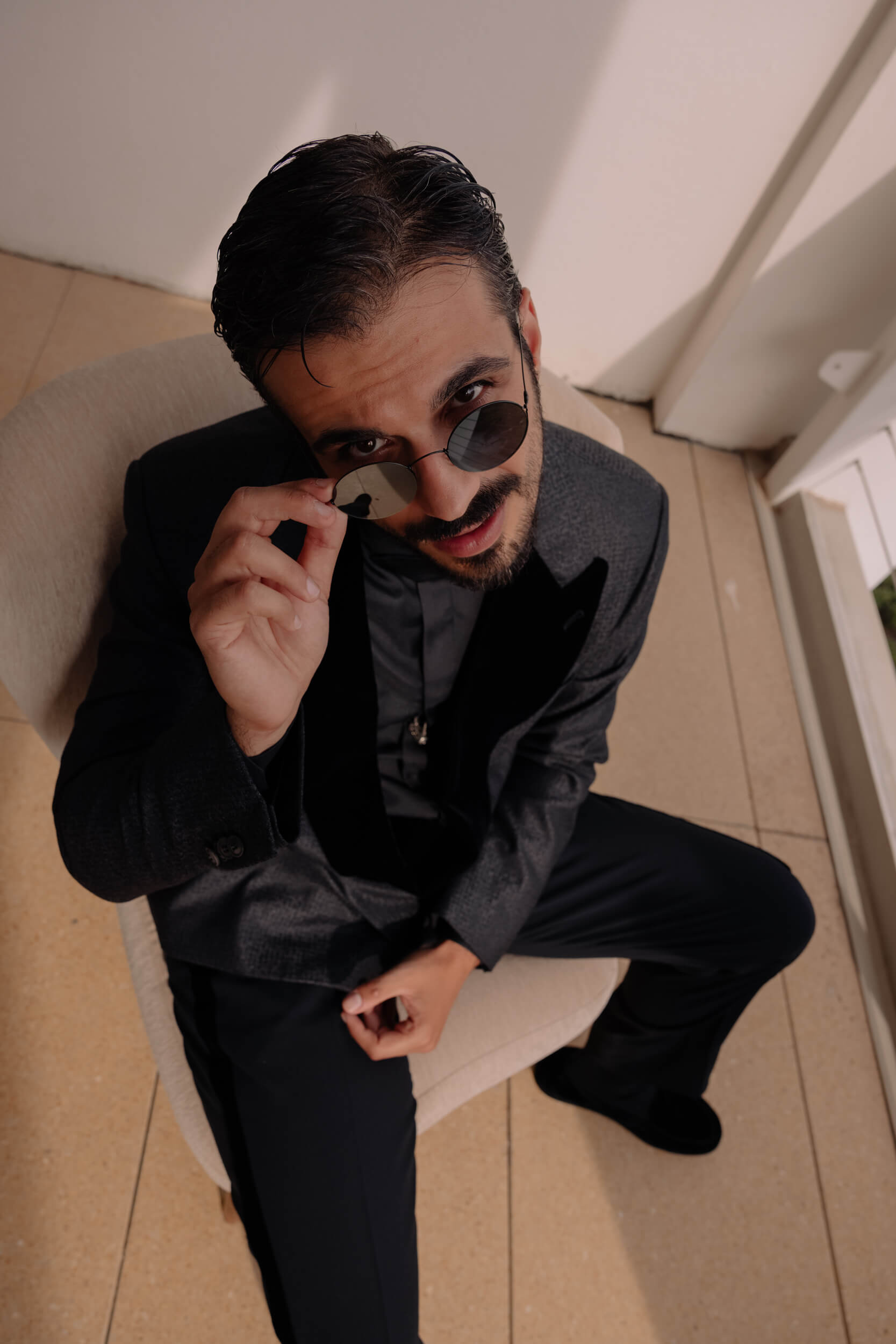
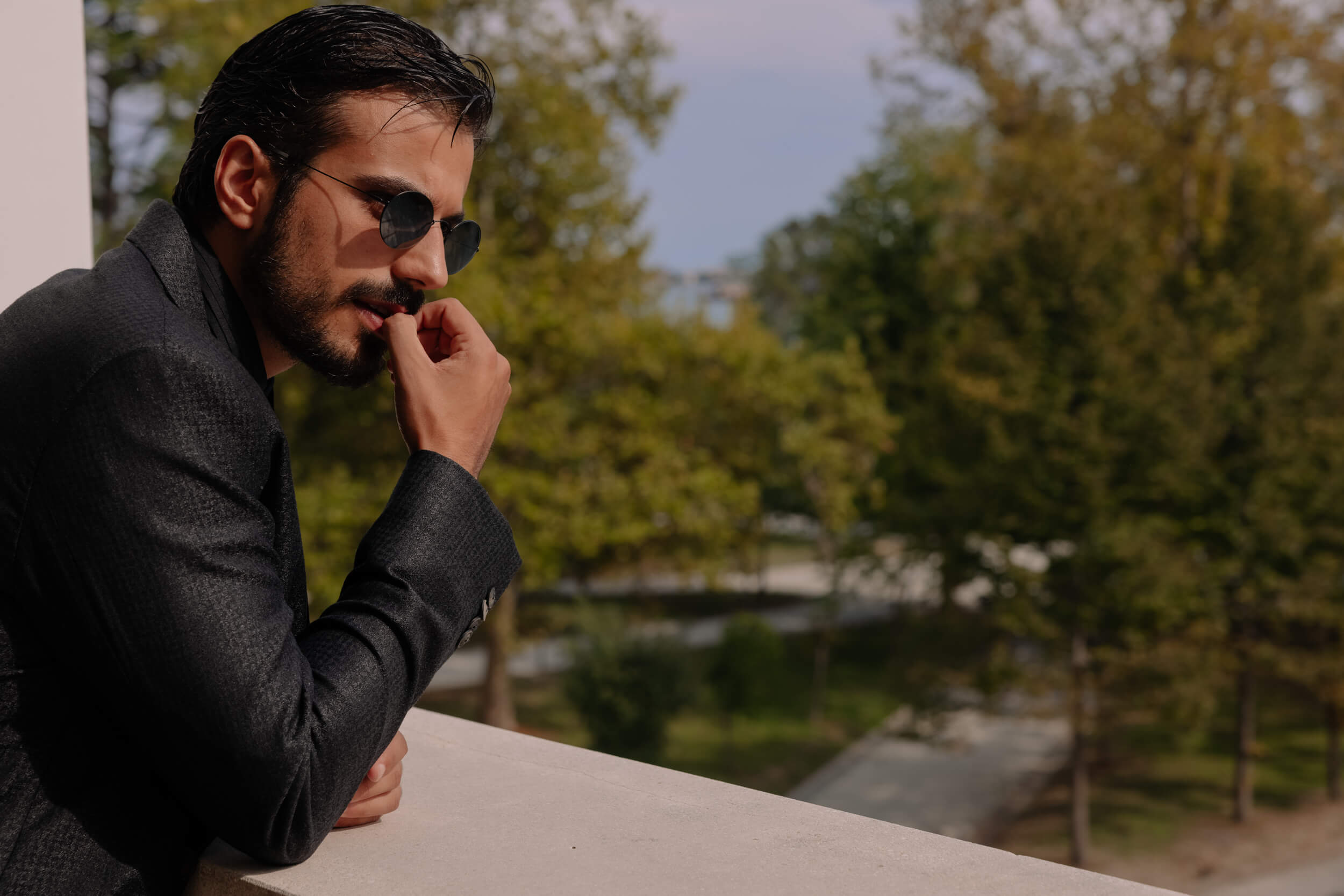
Your biggest act of rebellion?
I think it was the decision to do this job, going away from home, from the comfort of marshy land, and jumping into the void. Regardless of the results, when I think about that, still today I say to myself, “well done, bravo!”.
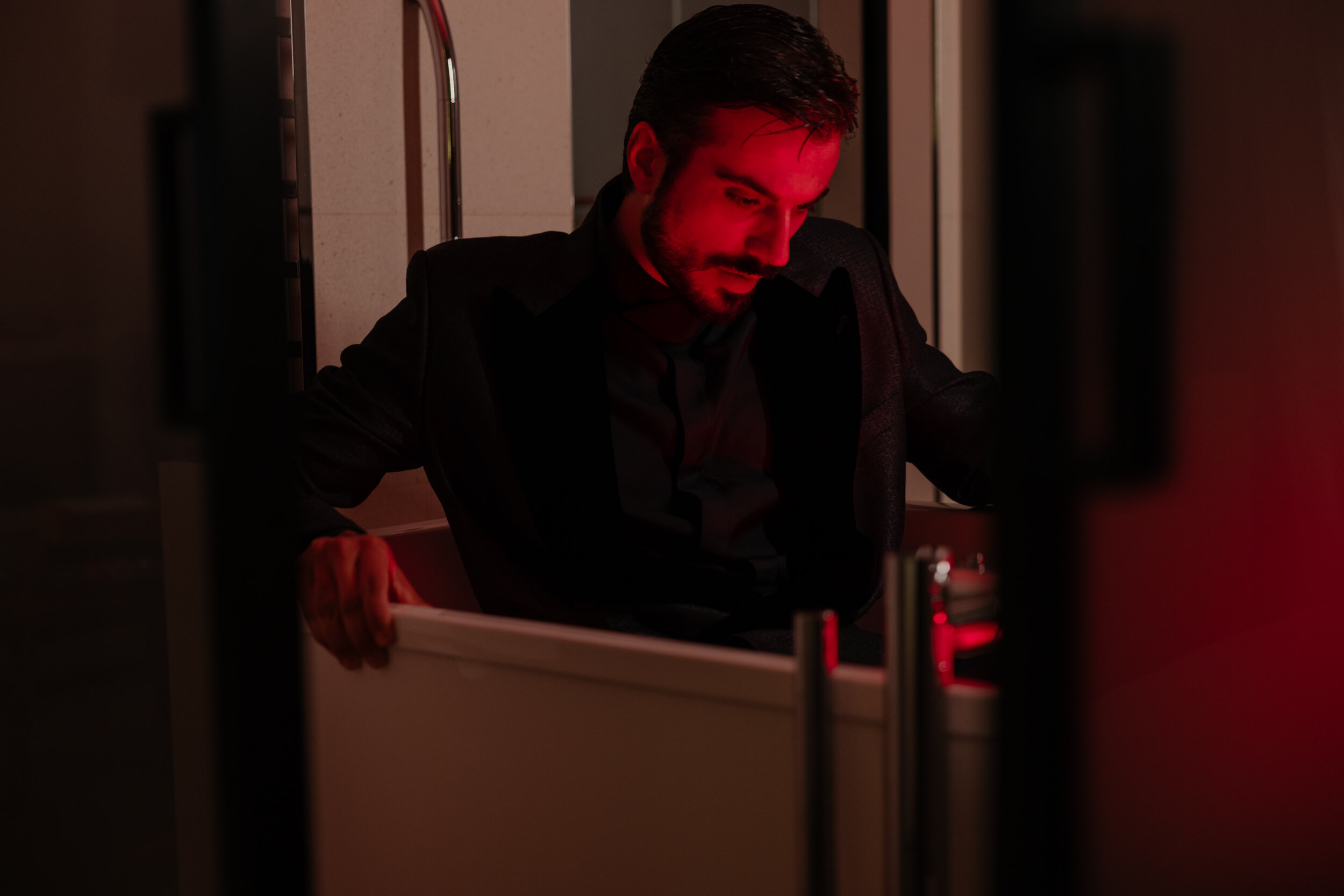
What does it mean to you to feel comfortable in your own skin?
For so many years I haven’t felt comfortable in my skin. Then, when creating my personality, my skin has become the container of what I really am. And my skin has scars, stretch marks, flaws, and tattoos, more or less faded out, and I’ve always thought it was a sign of life in my soul. Skin is a wonderful map that changes with us, with time. And now I feel great here.
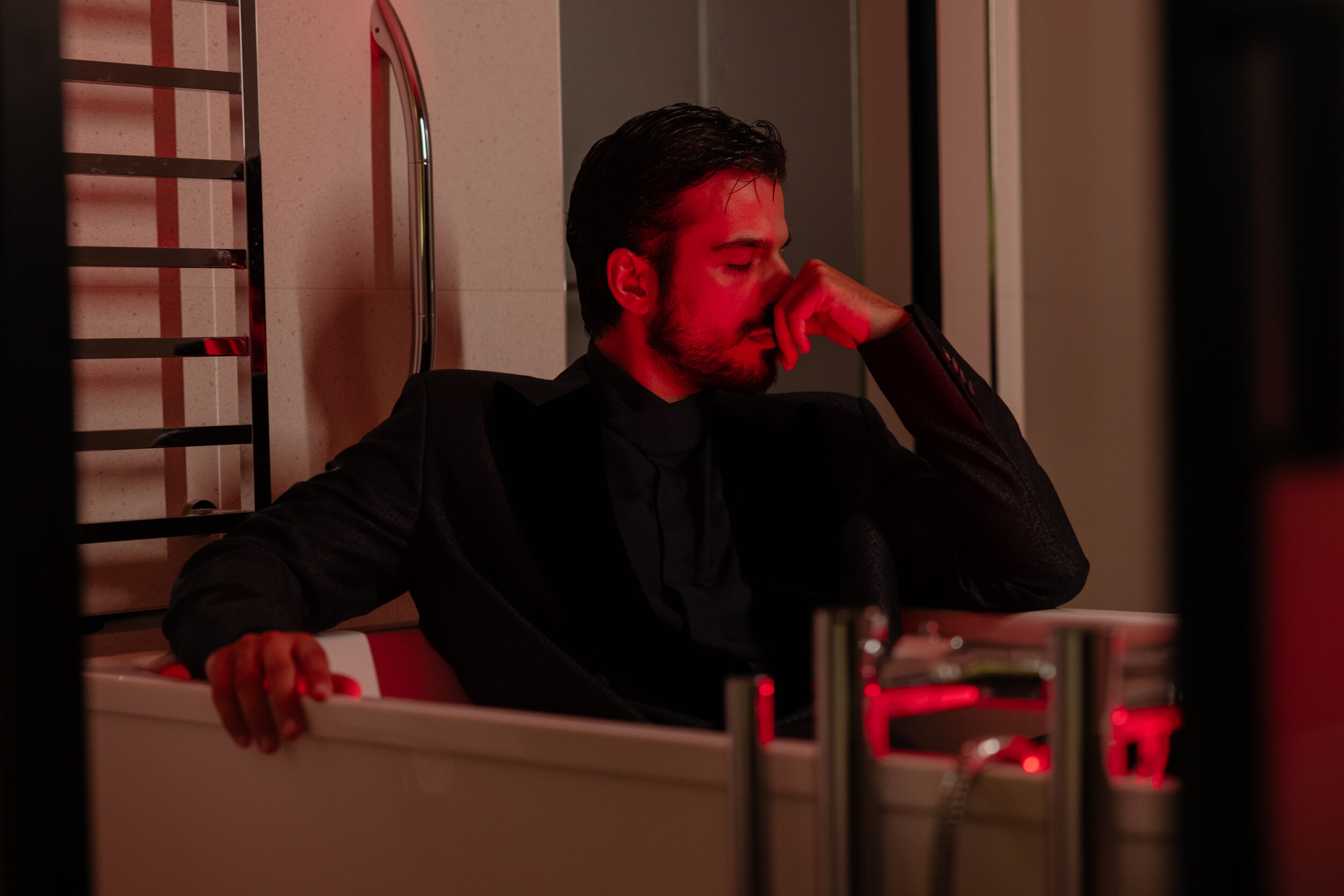
“When creating my personality, my skin has become the container of what I really am.”
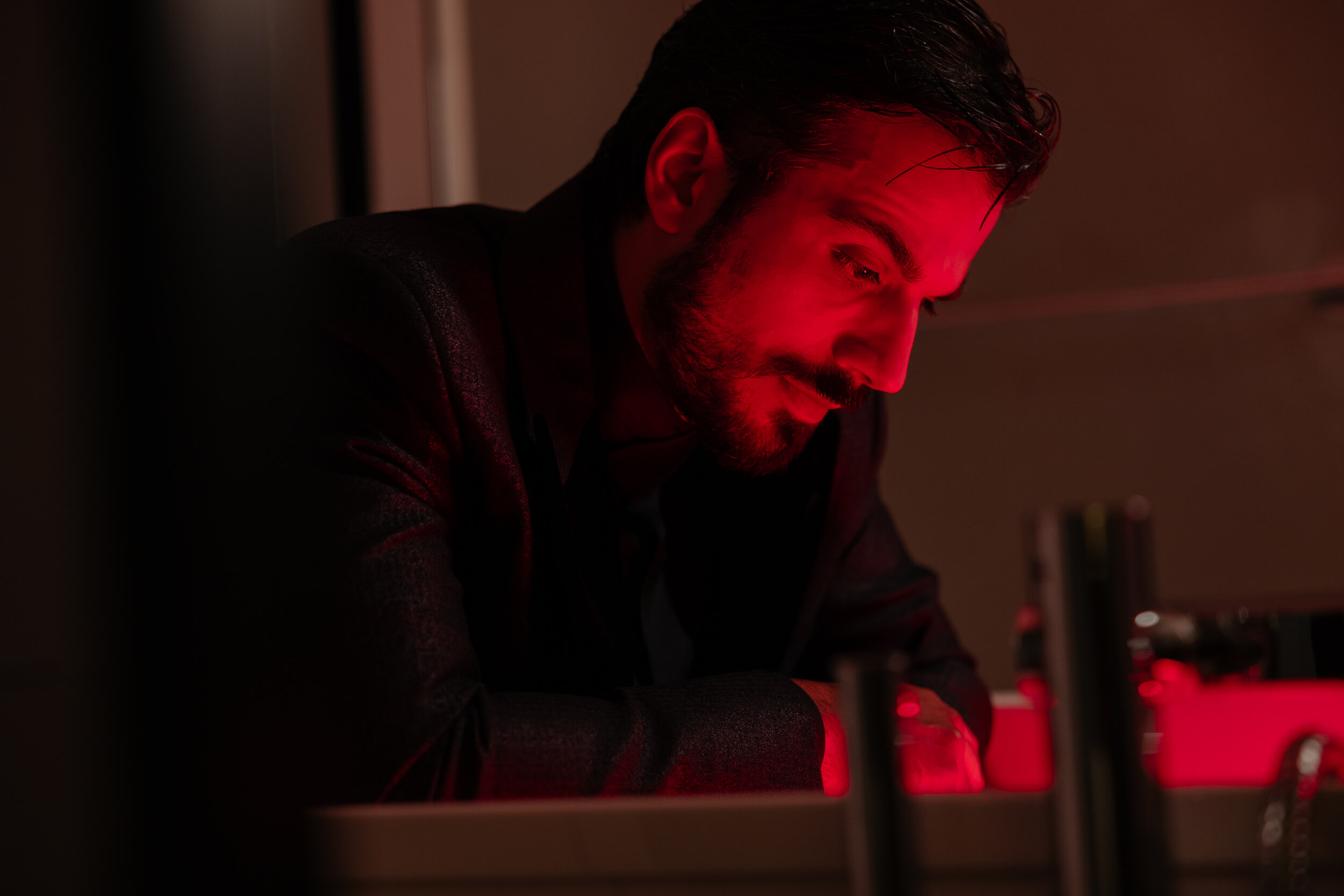
What’s the latest thing or person that made you smile?
My girlfriend. Always and in every way.
Your happy place?
My home.
Sometimes I feel the need to be here, on my own. With the passing of the years, the place where I live has started to absorb the journey I’ve had and the people I’ve lived with. Even just listening to a record and reading a book keeps making me happy here, more than in other places.
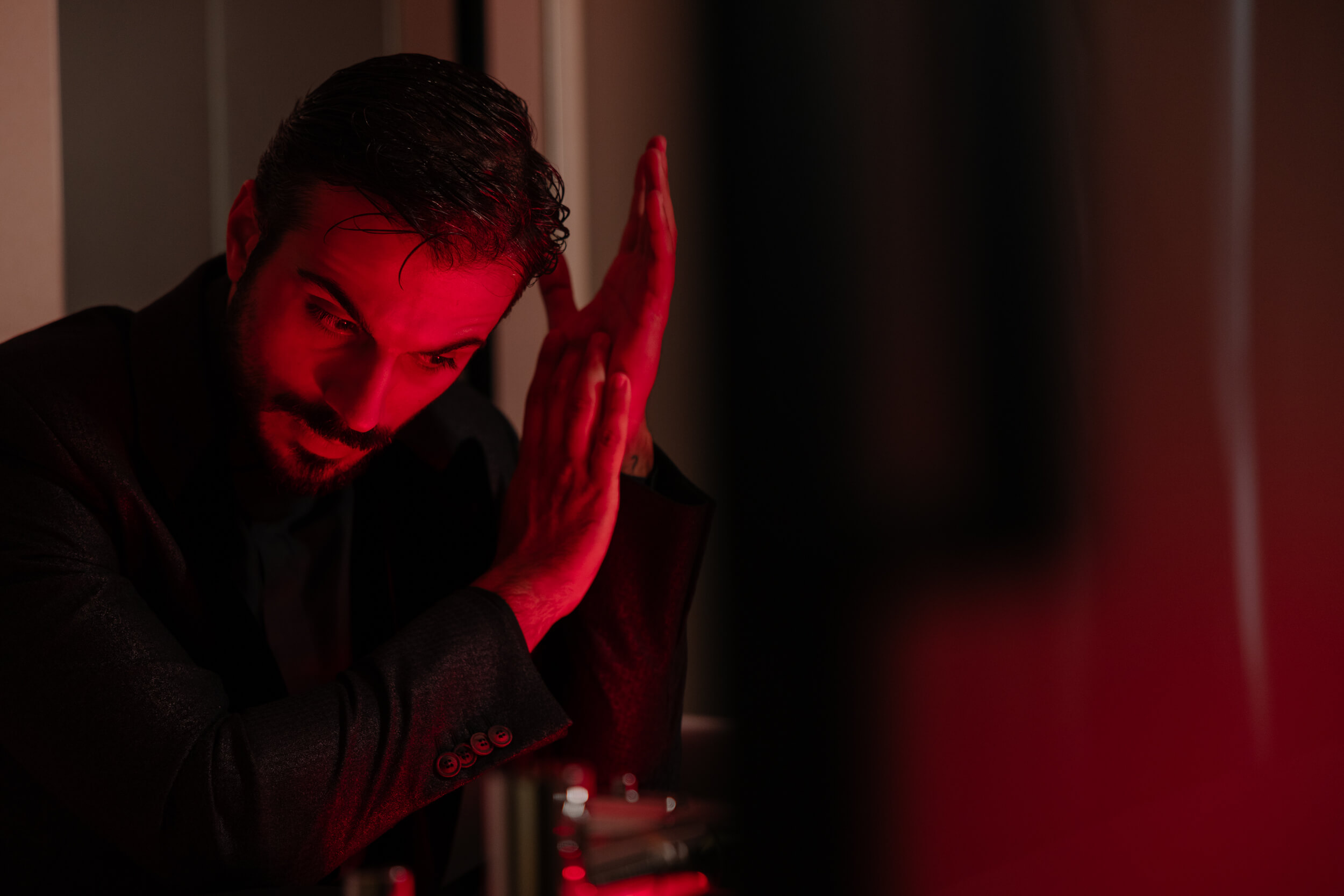
Photos by Johnny Carrano.
Styling by Nick Cerioni.
Total Look: Giorgio Armani
Location: JW Marriott Venice Resort & Spa.
Thanks to Andreas Mercante & Edoardo Andrini.
“I Viaggiatori” is a Sky Original movie by Ludovico Di Martino, produced by Sky Studios and Groenlandia, internationally distributed by NBCUniversal Global Distribution. Available on Sky Cinema and in streaming on NOW from November 21.

